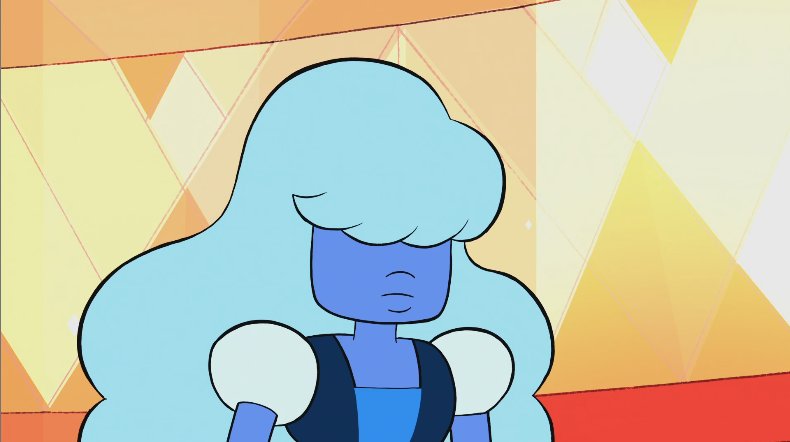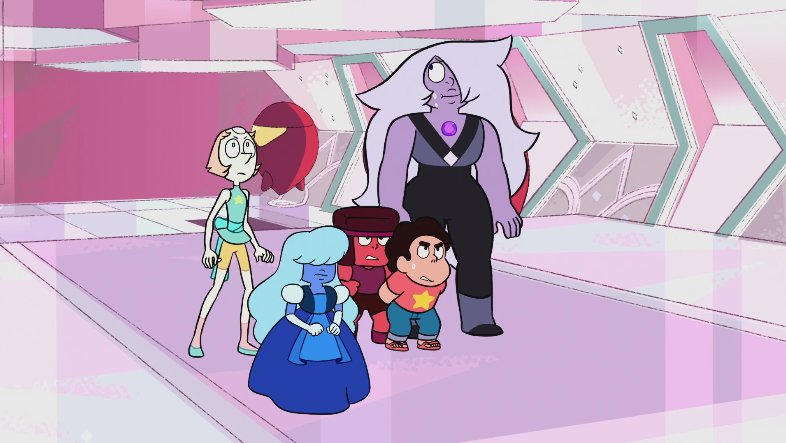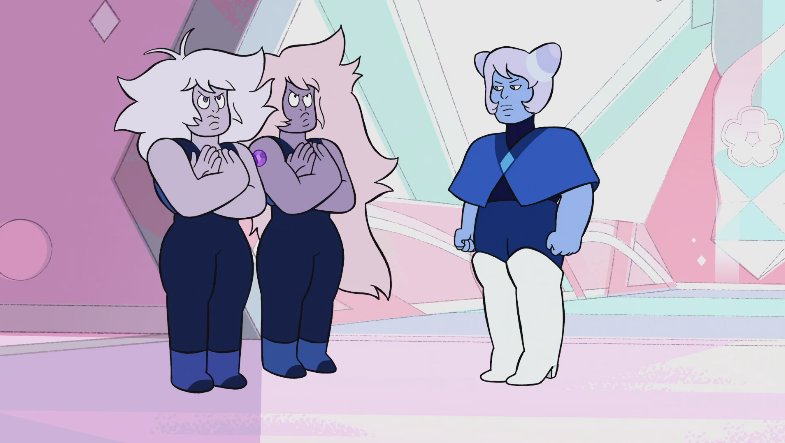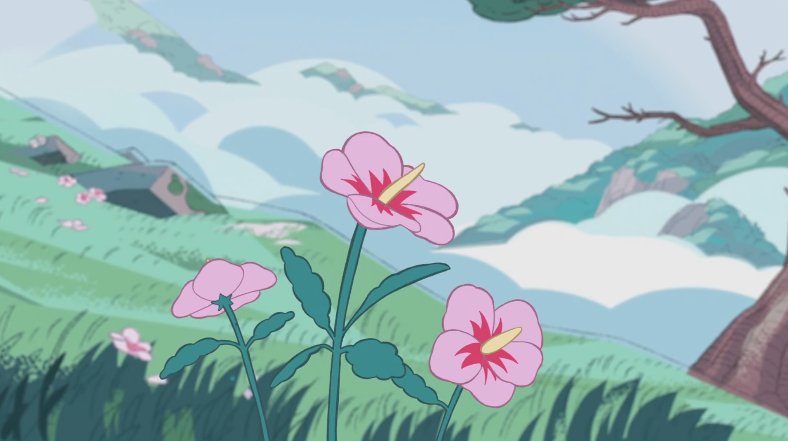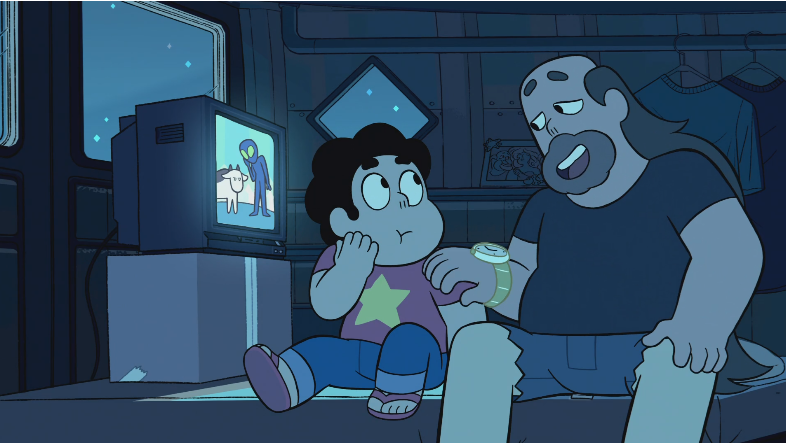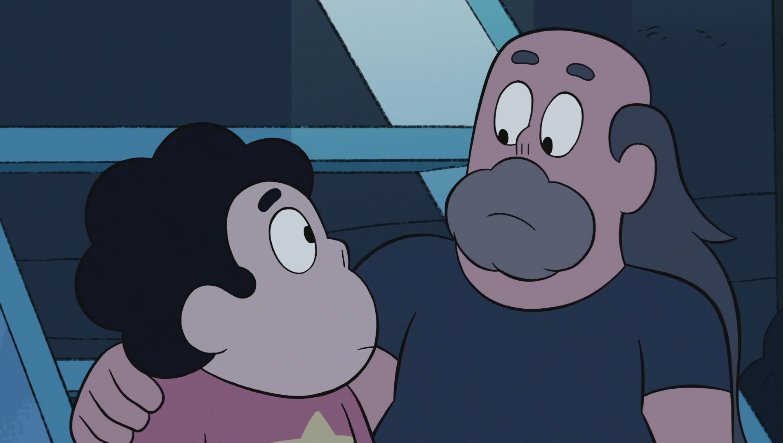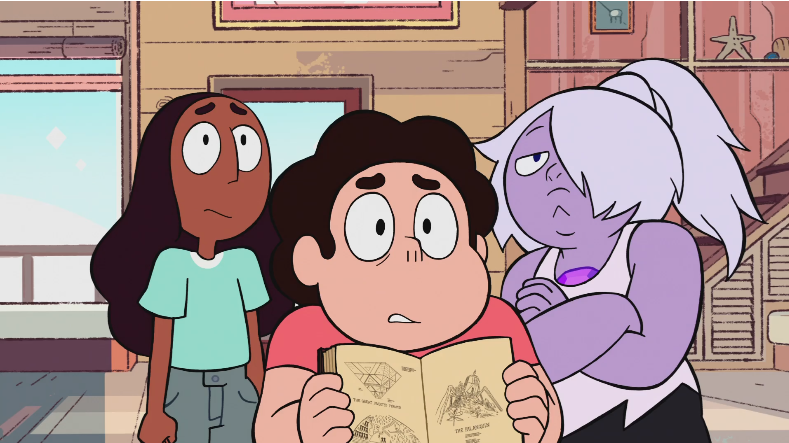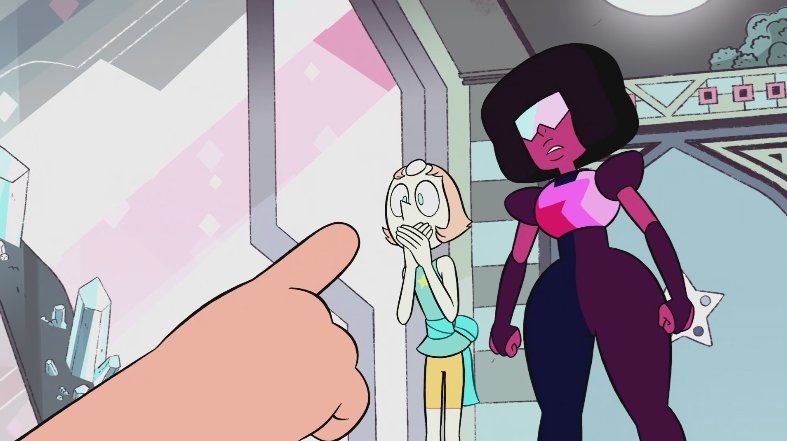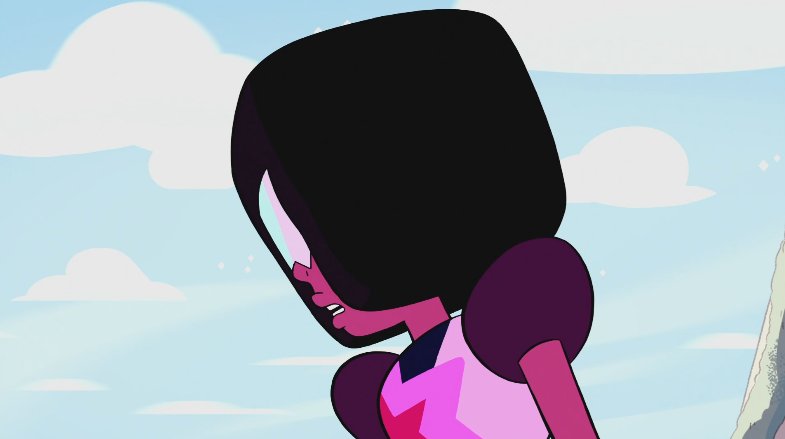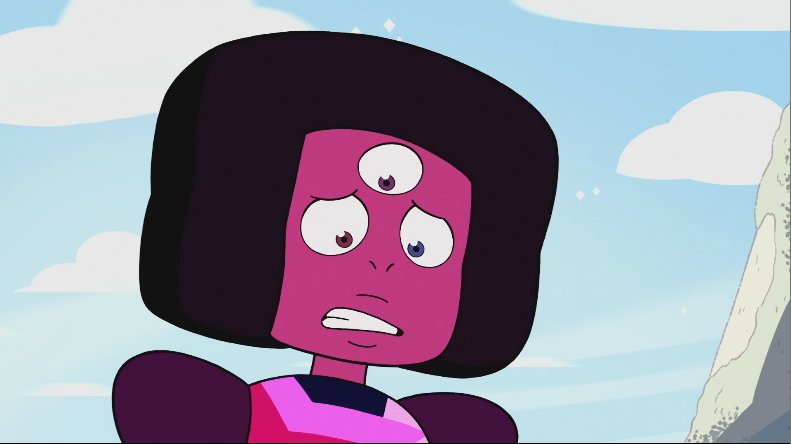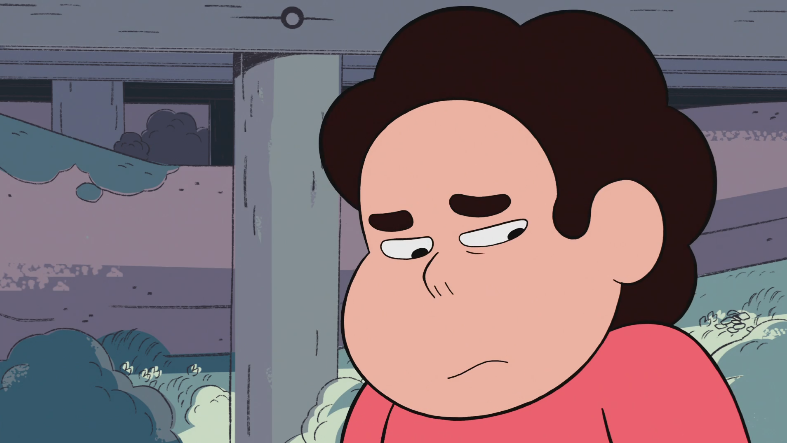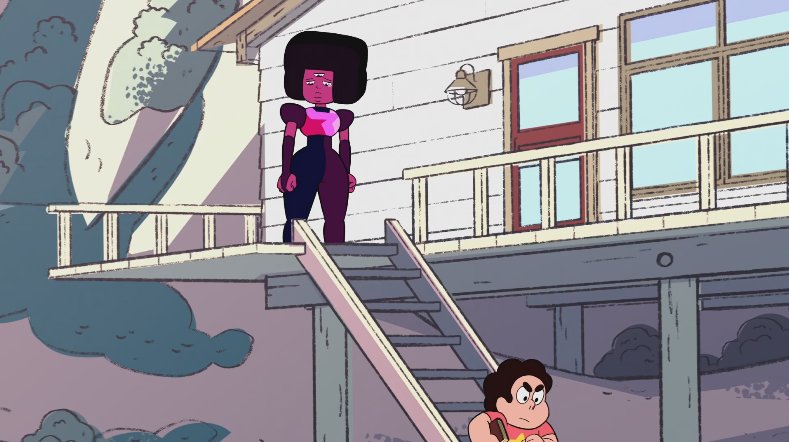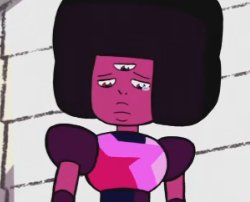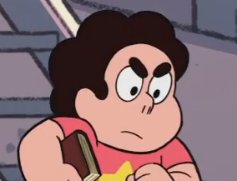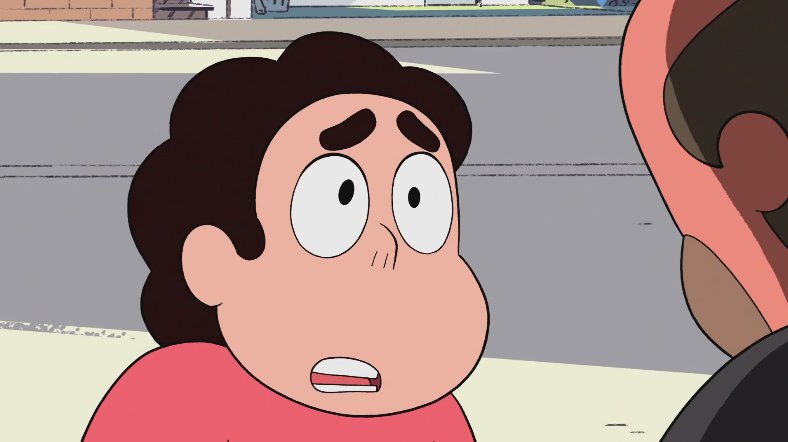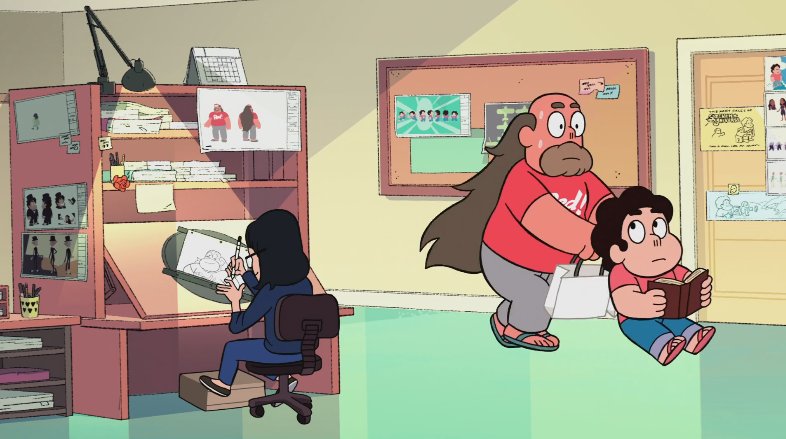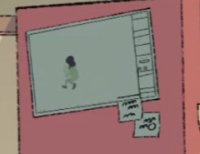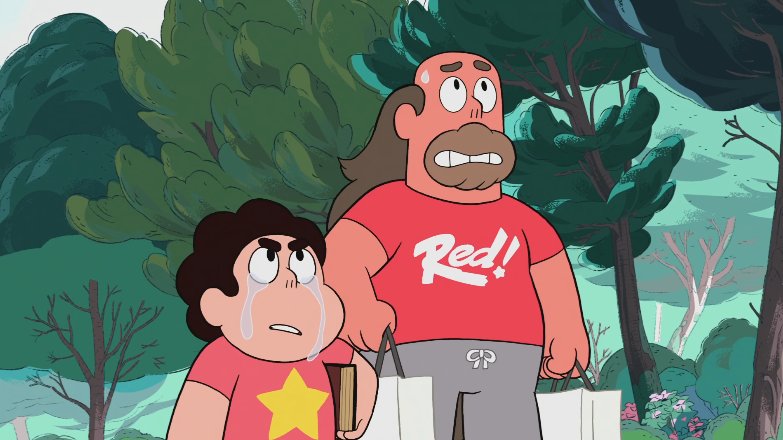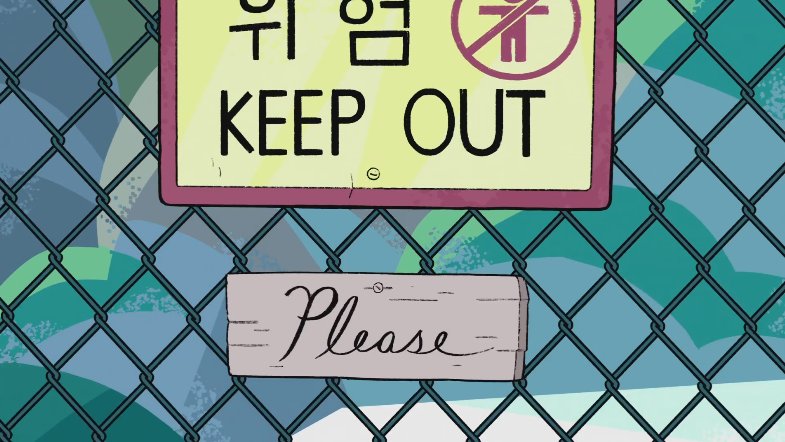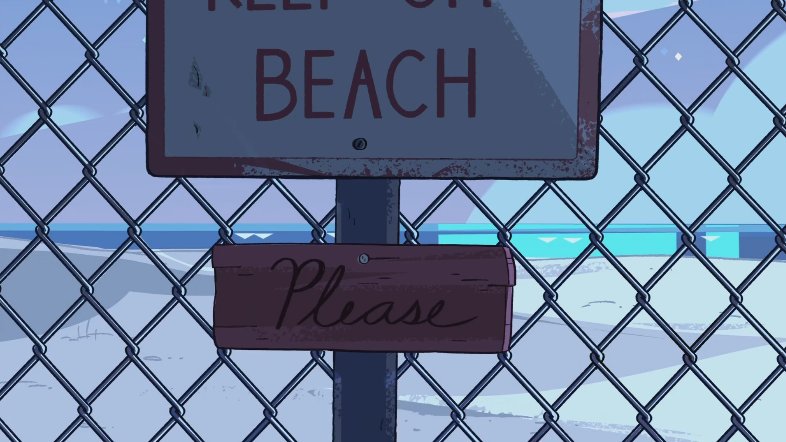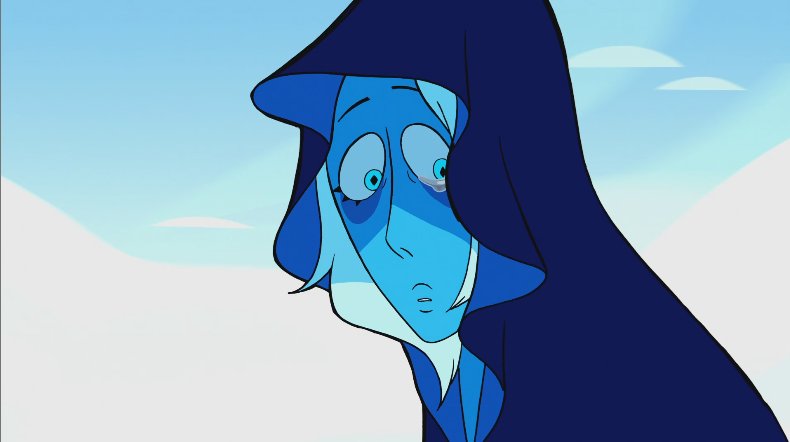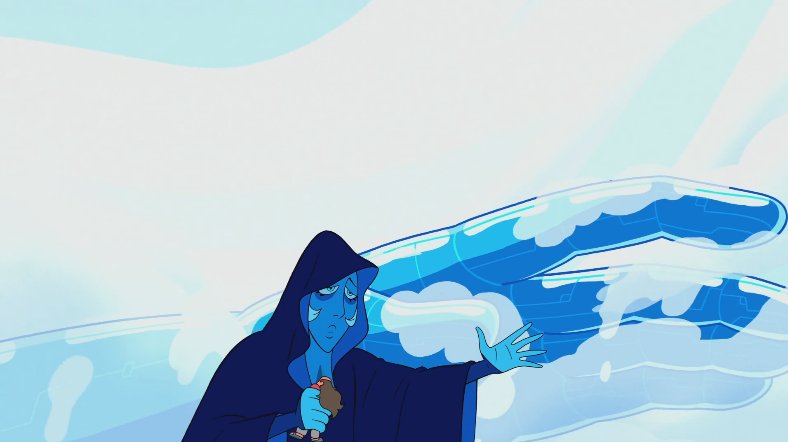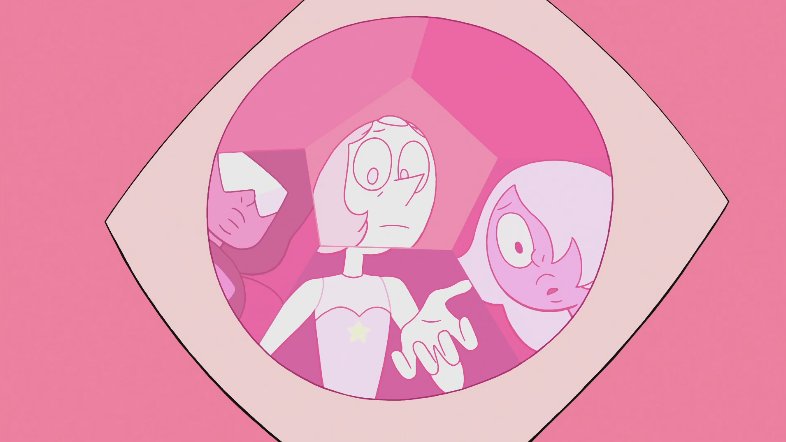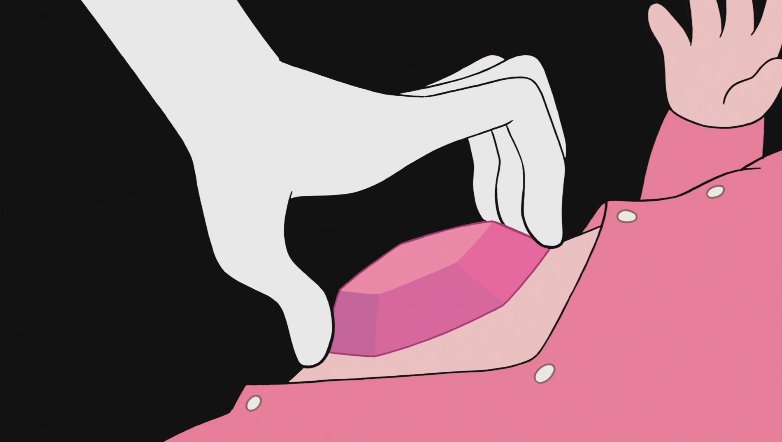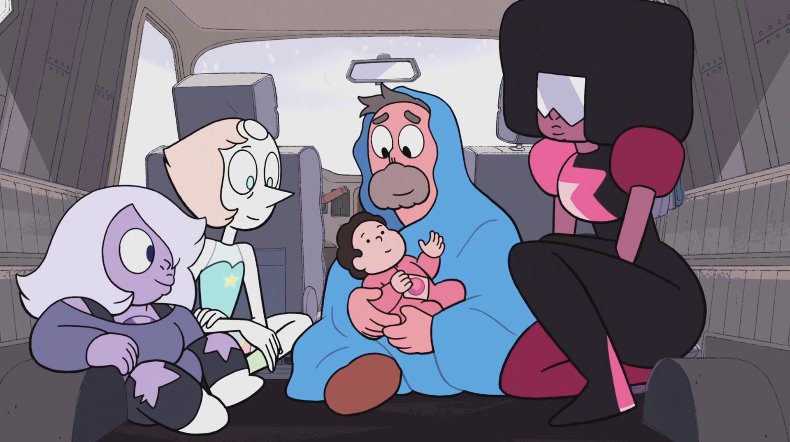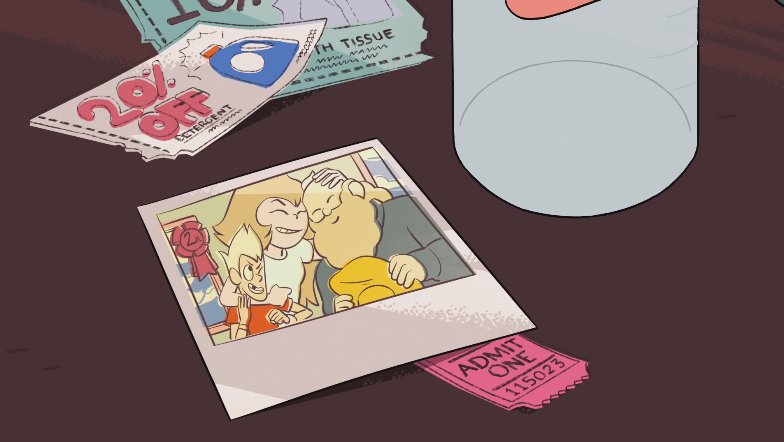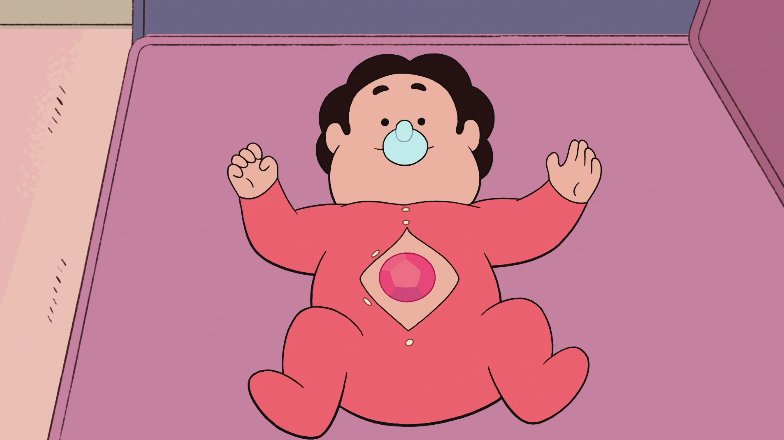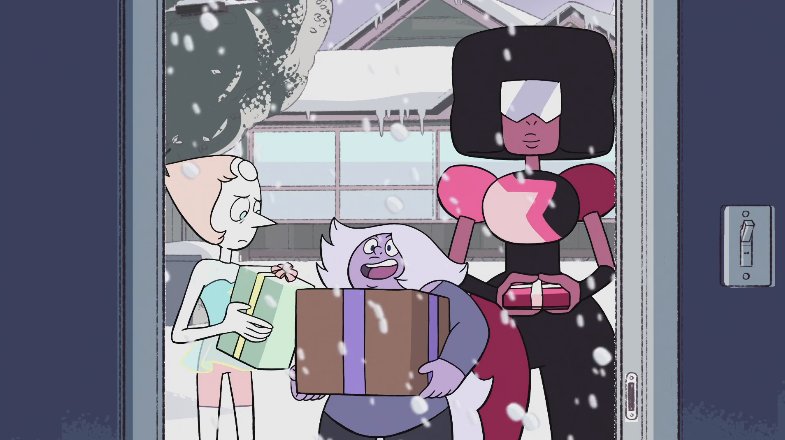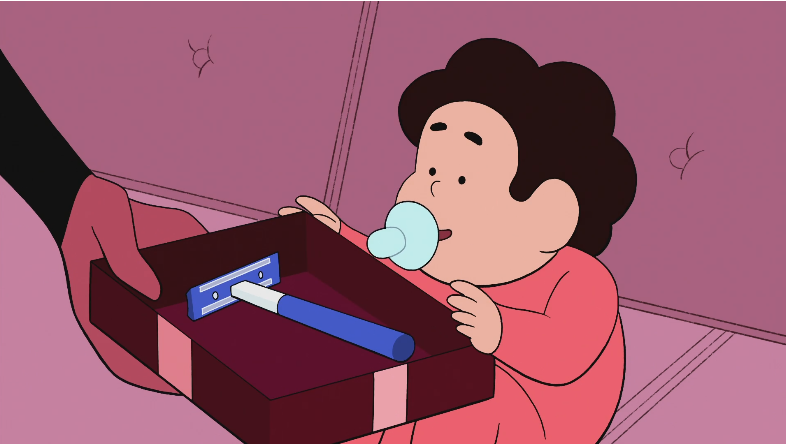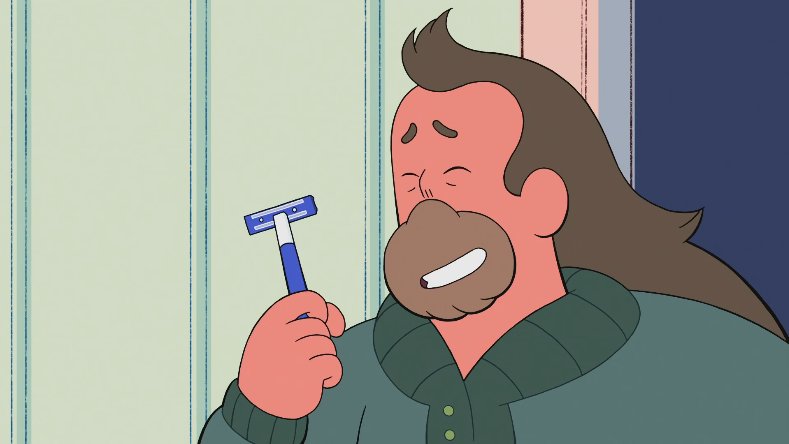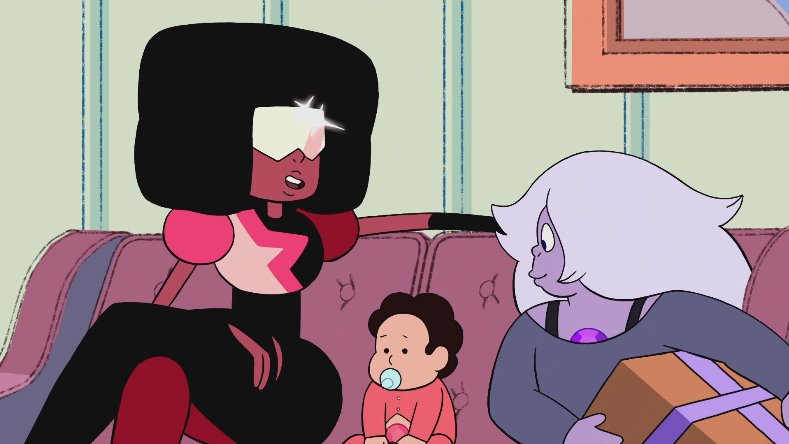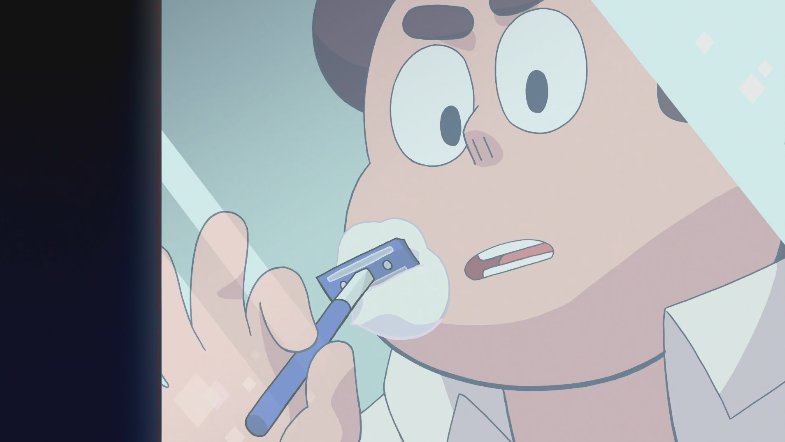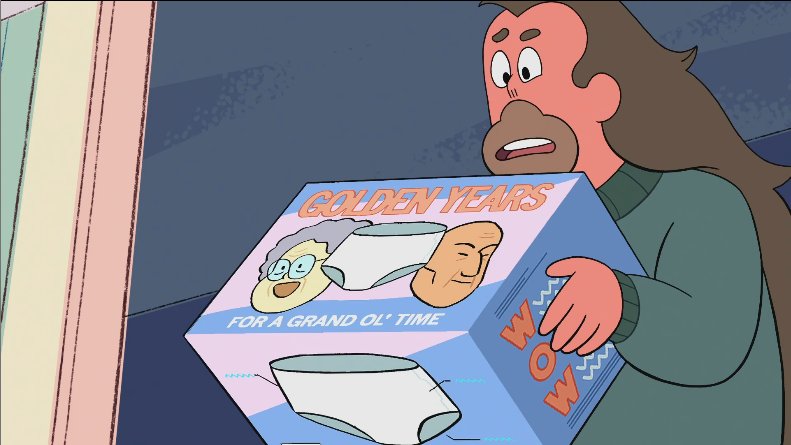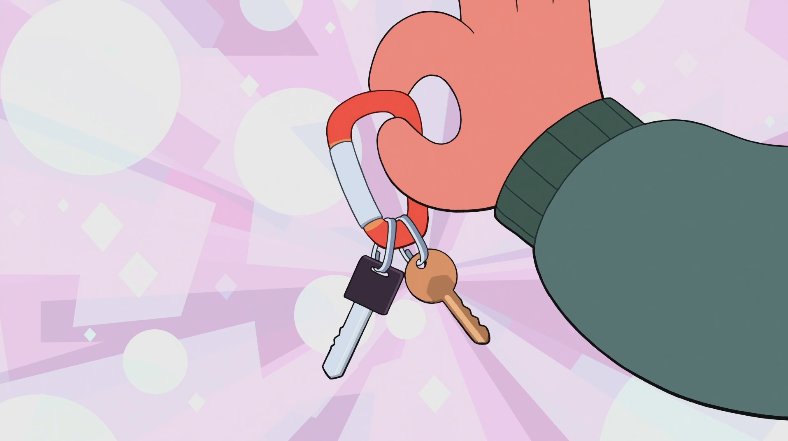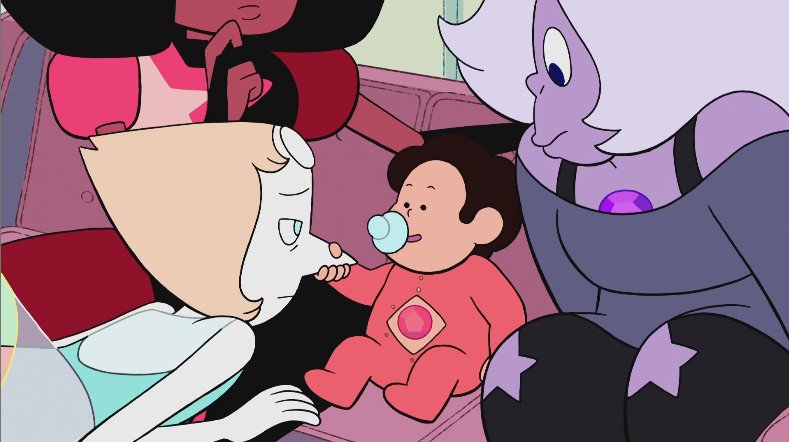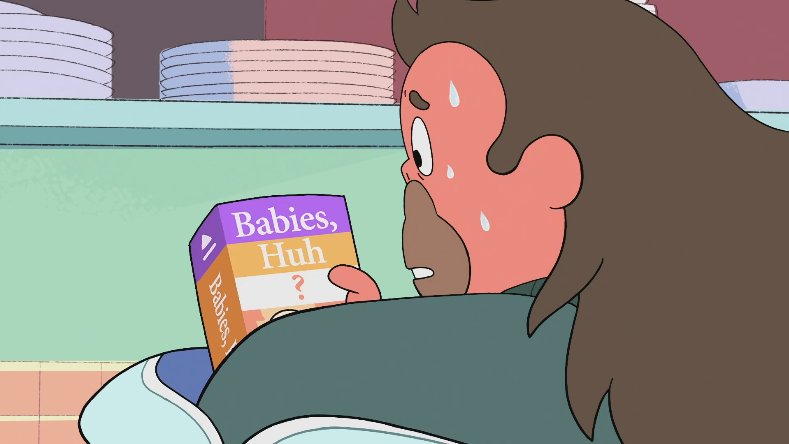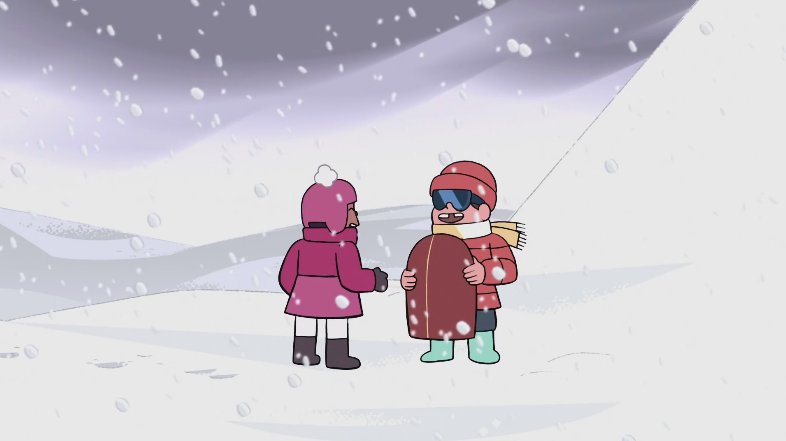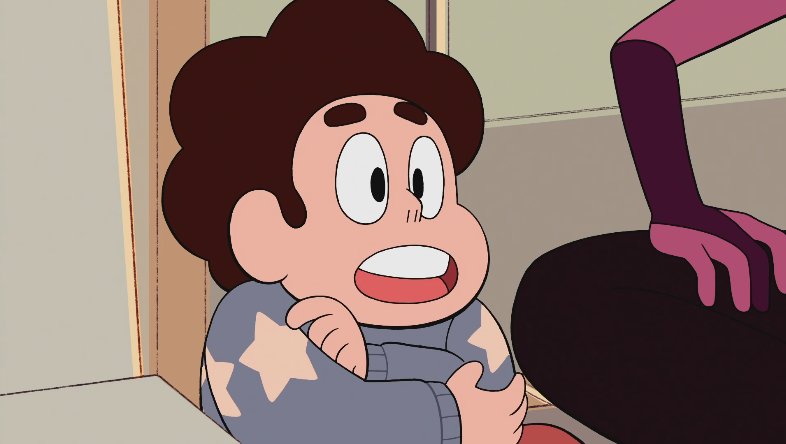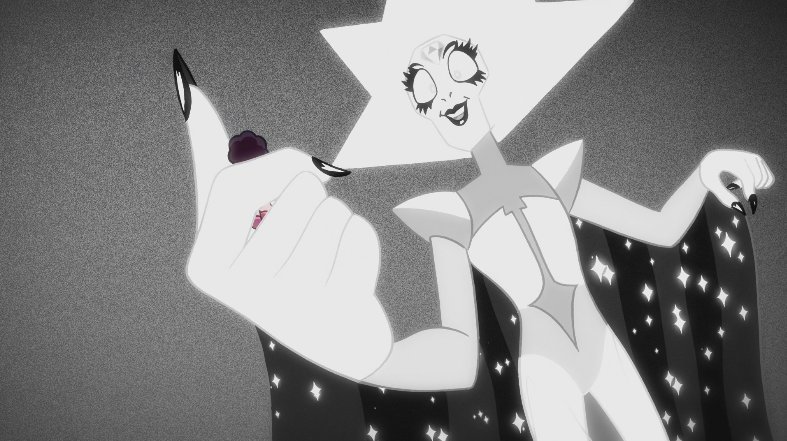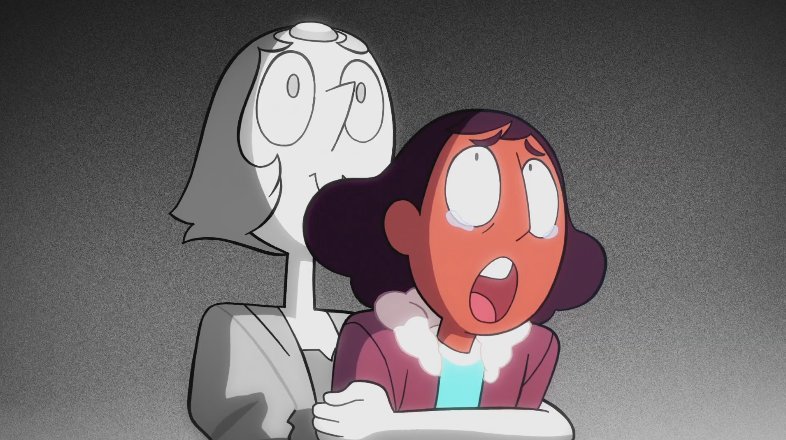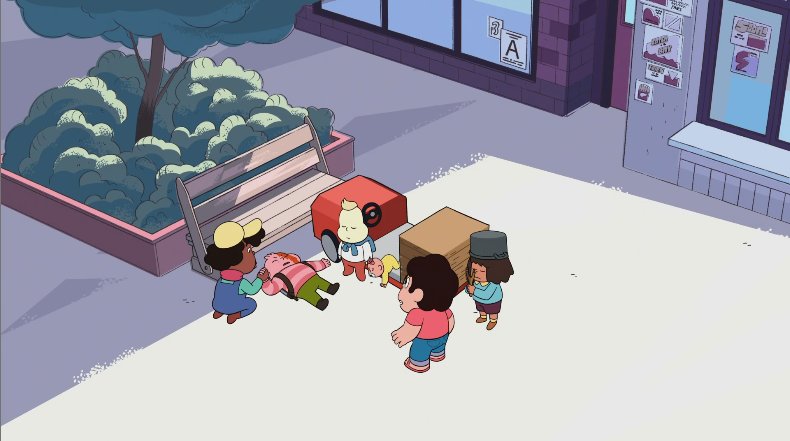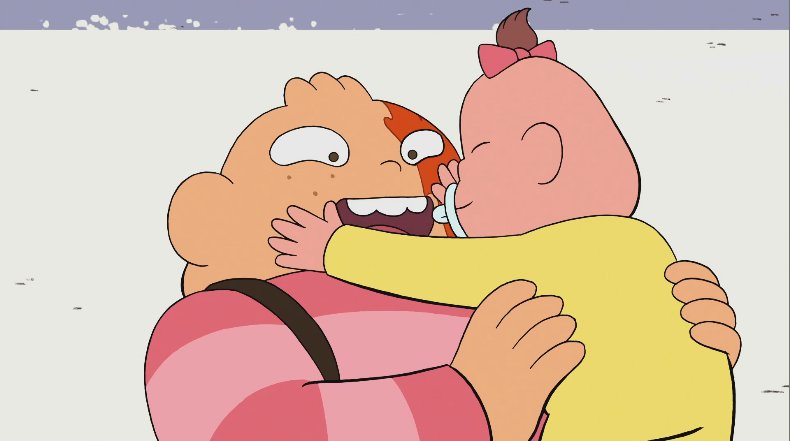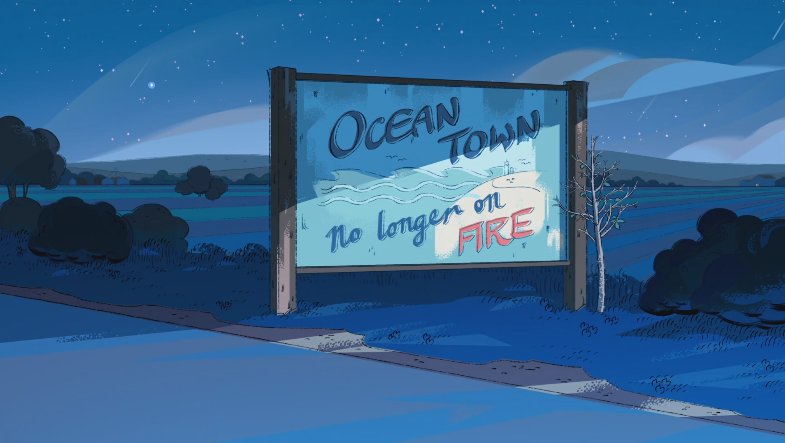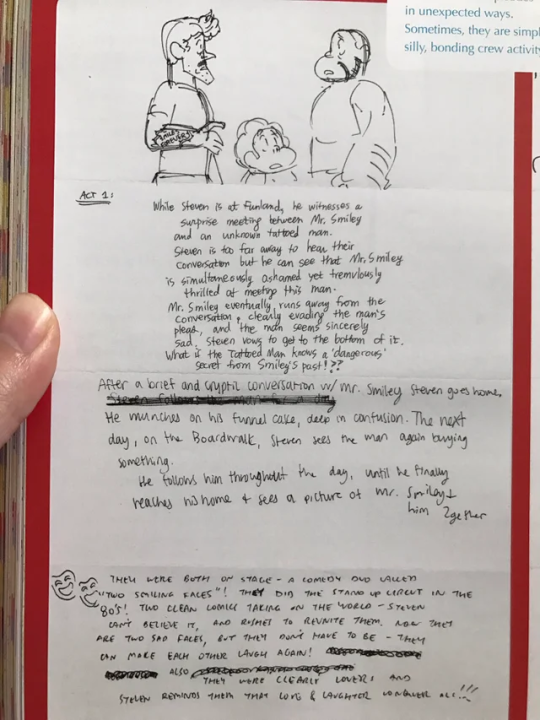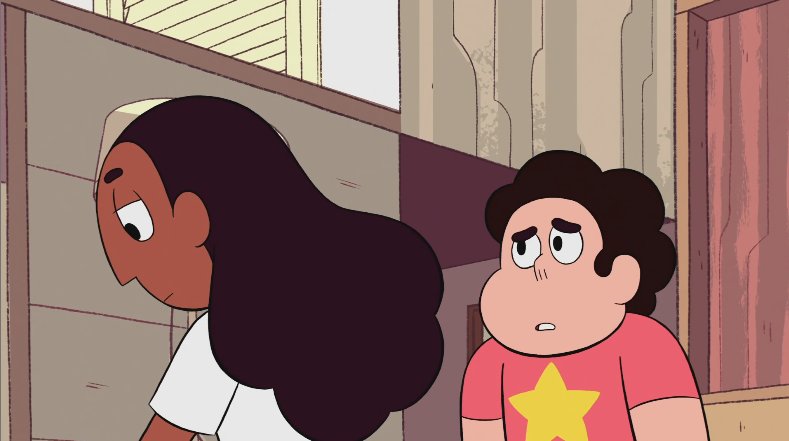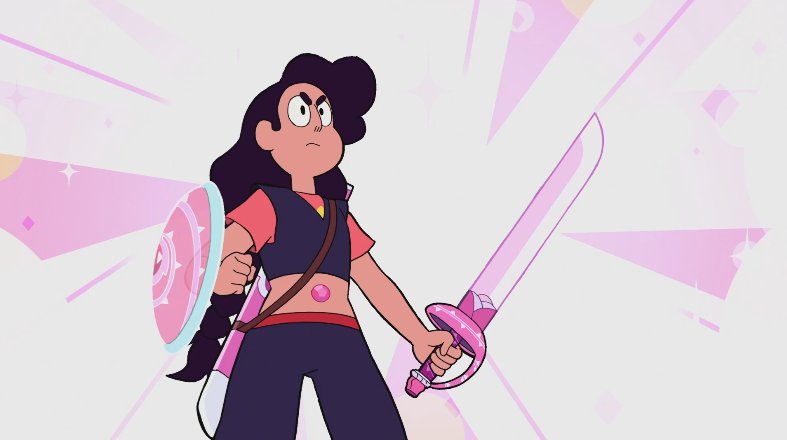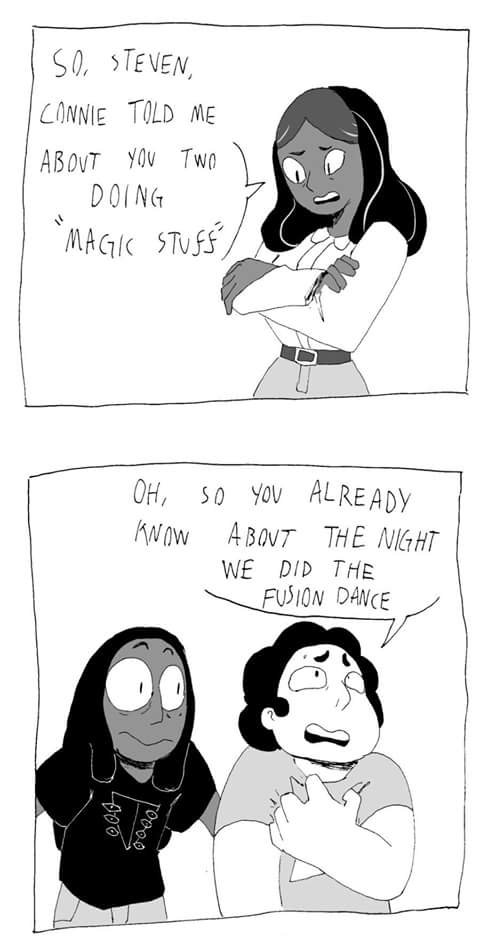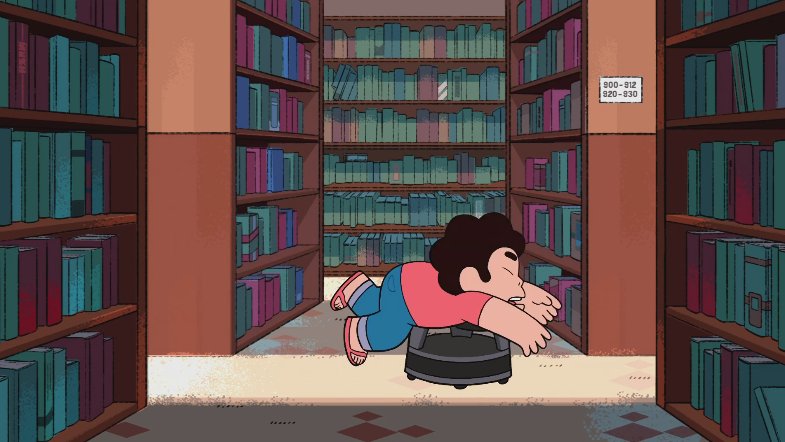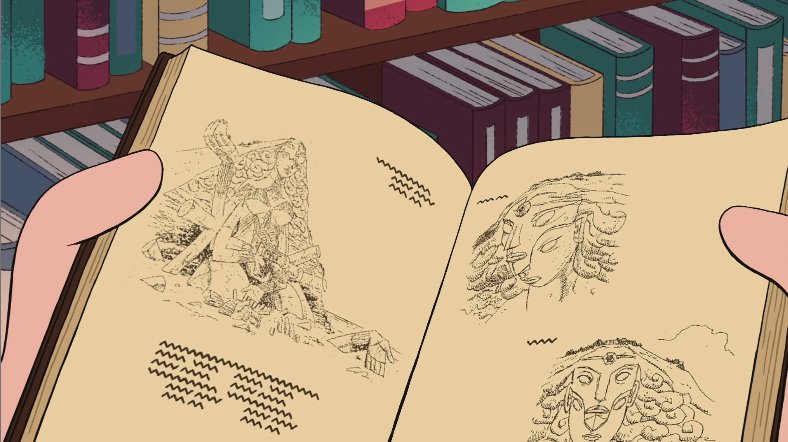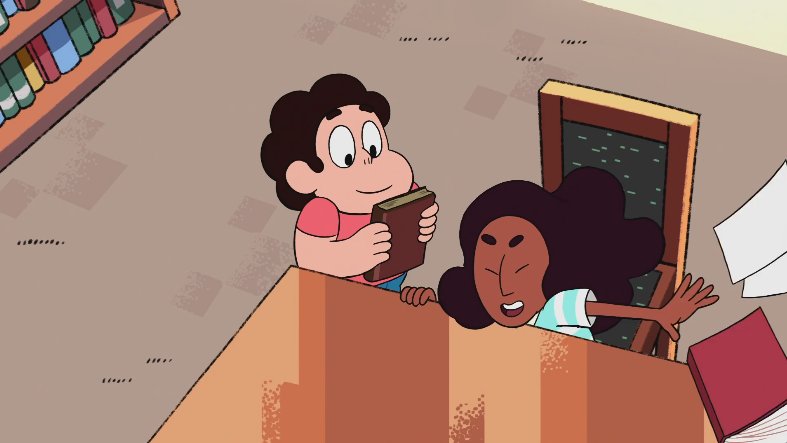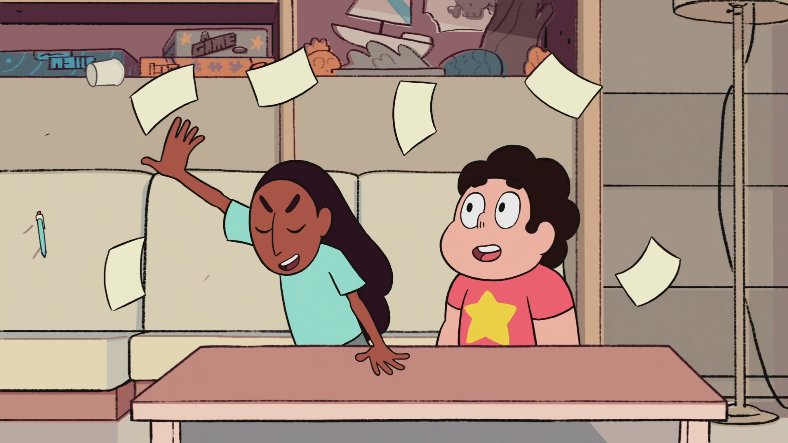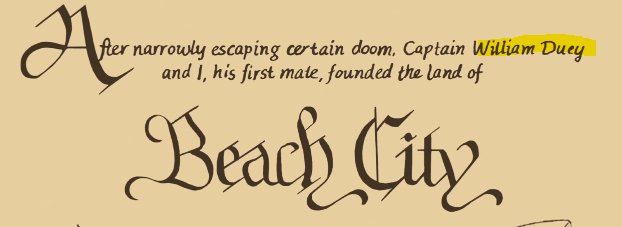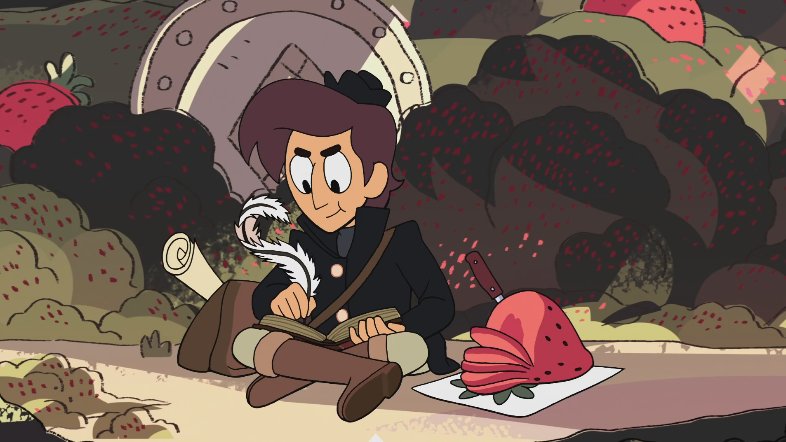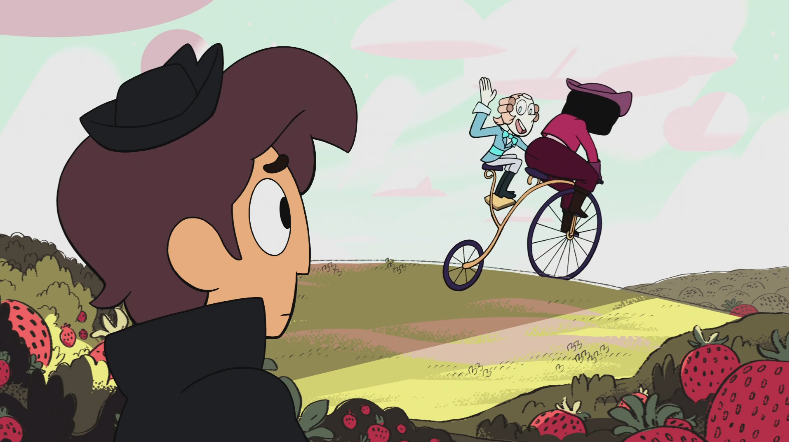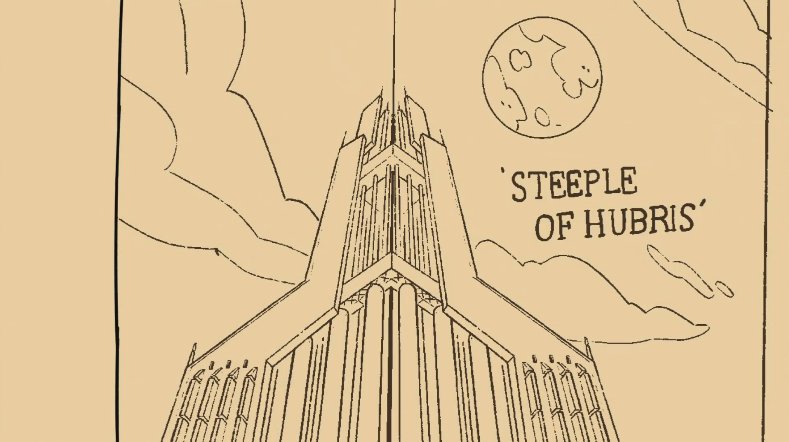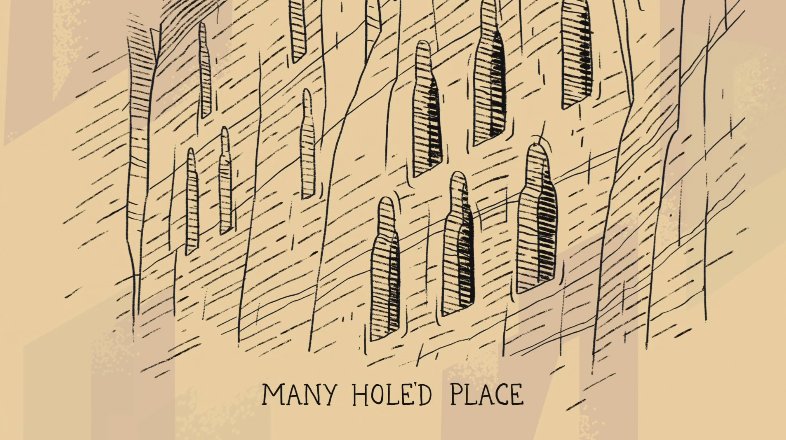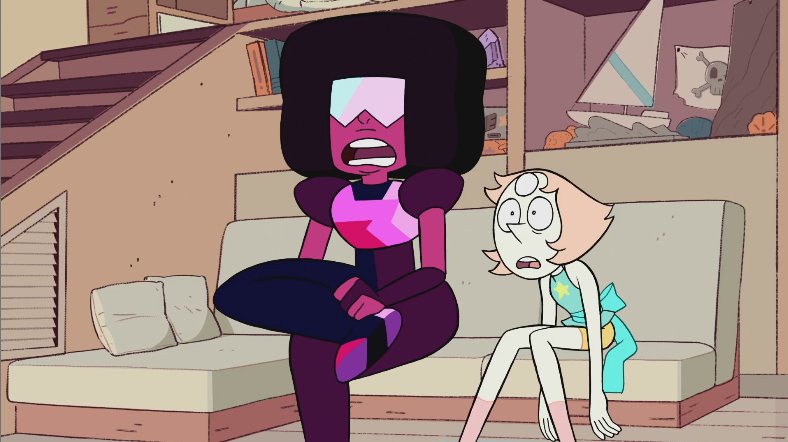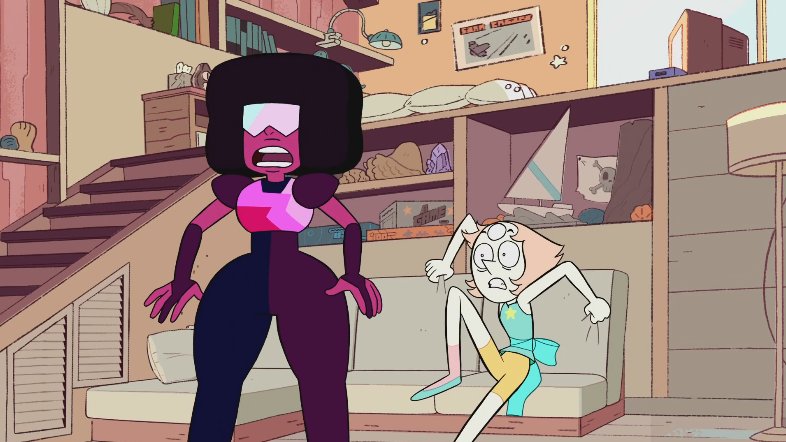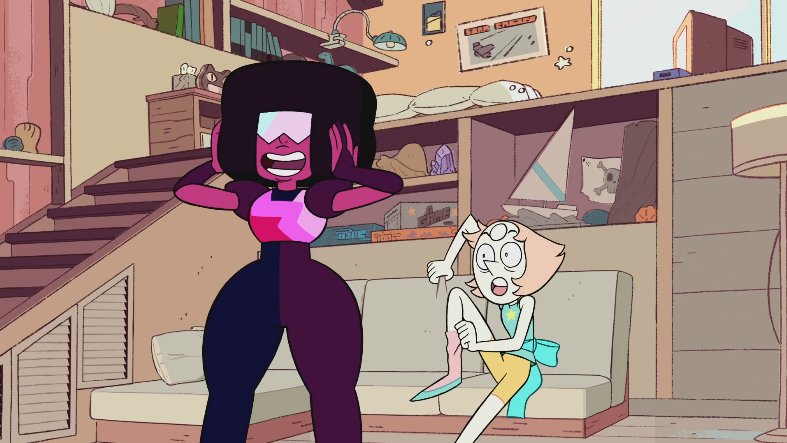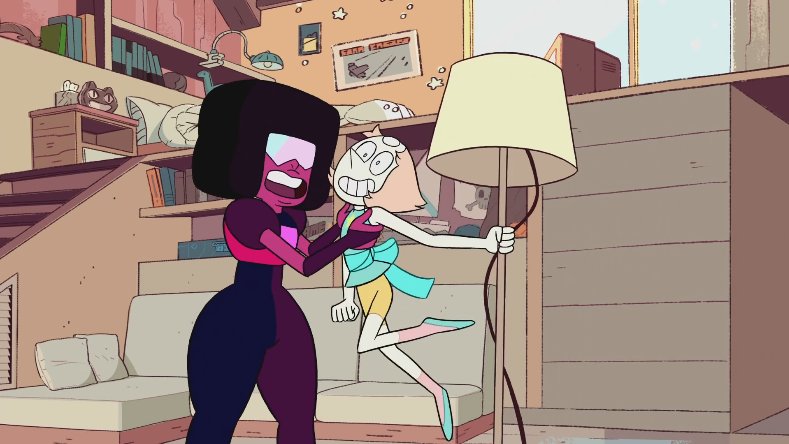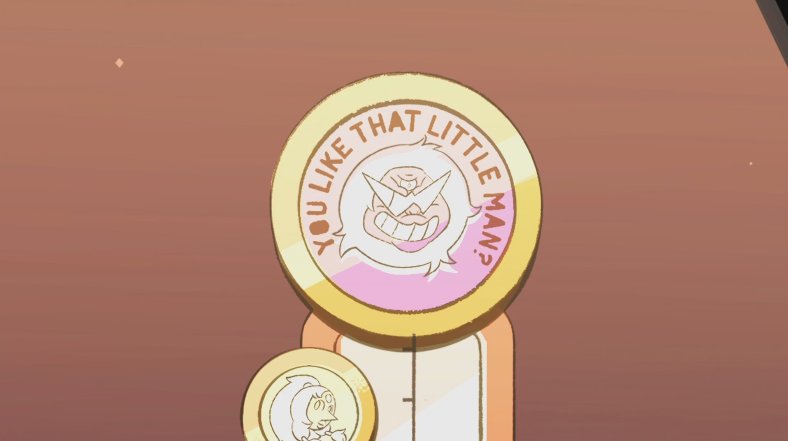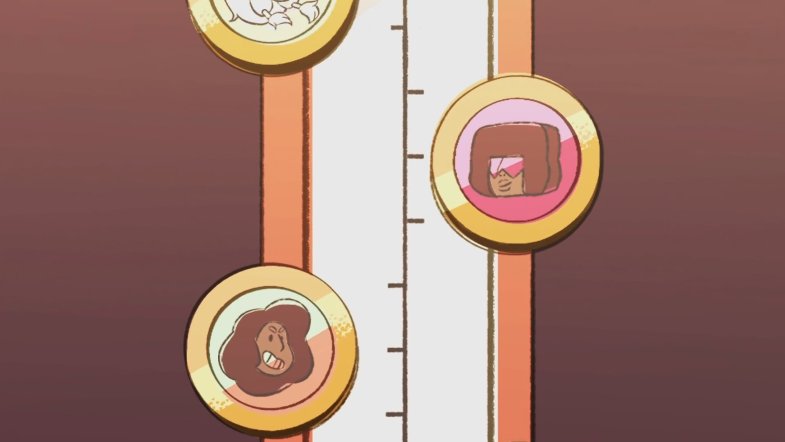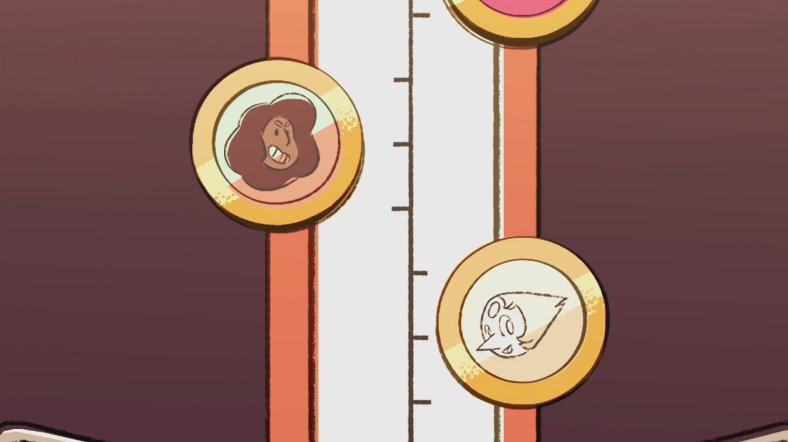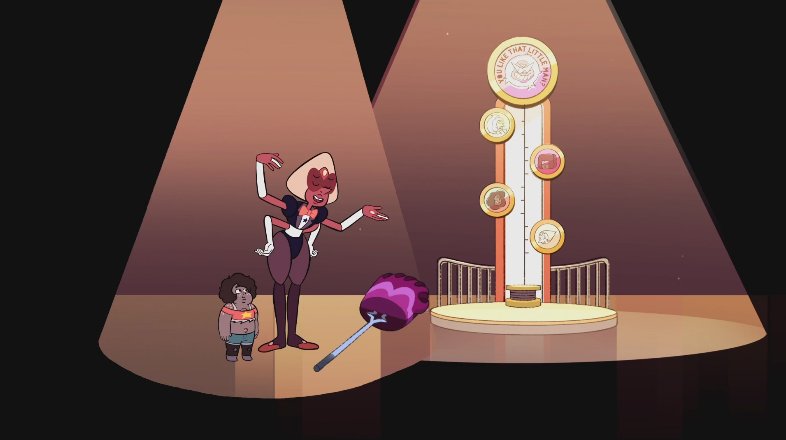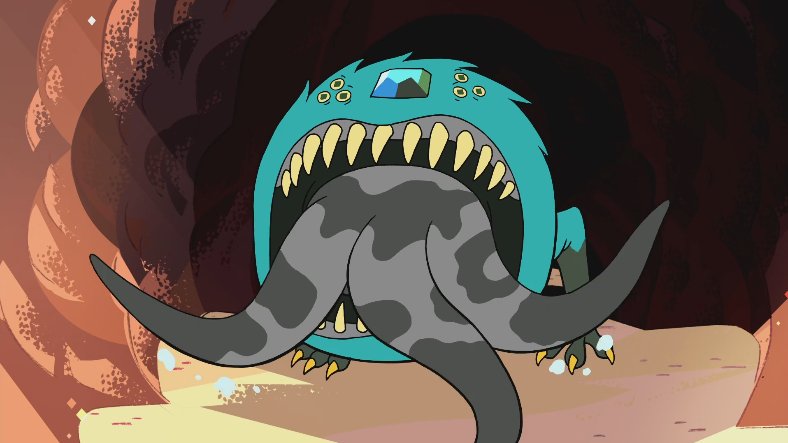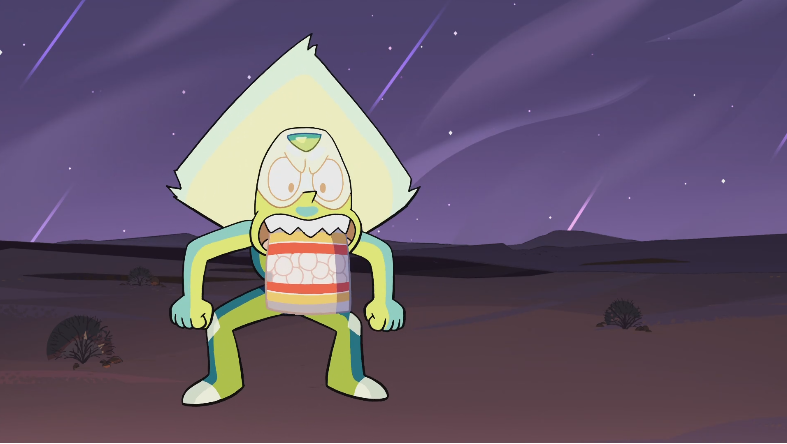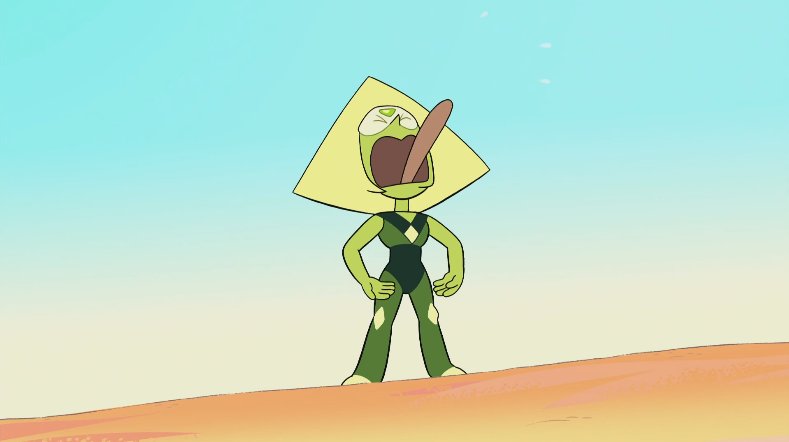Audible Twilight: The Visceral Soundscape of Steven Universe
Listening to Steven Universe in headphones, you really appreciate all the work that goes into the overall sound design. The light environmental sounds —crash of the surf, wind—the tangible Foley, how sounds get muffled or reflected. Tinnitus ring. All about Steven’s bubble.
I get confused about the geography sometimes, though, especially during season one. Where is this, for instance?
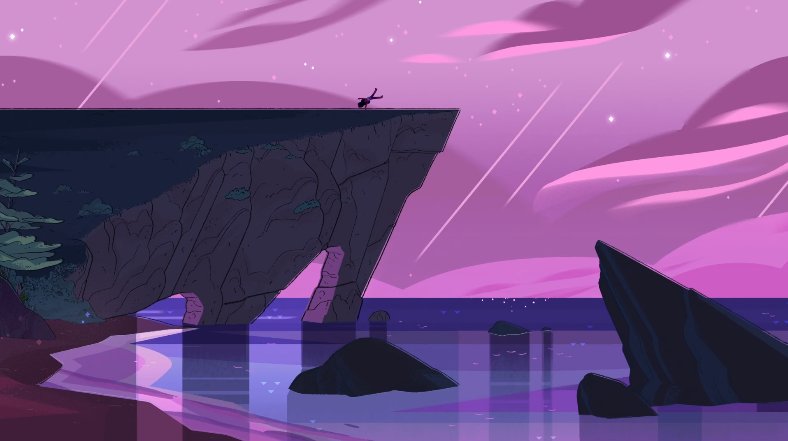
It’s not the cliff with the Crystal Temple. Is it on the other side of the bay, by Brooding Hill and the warehouse? If so, Stevonnie seems to drift pretty far…
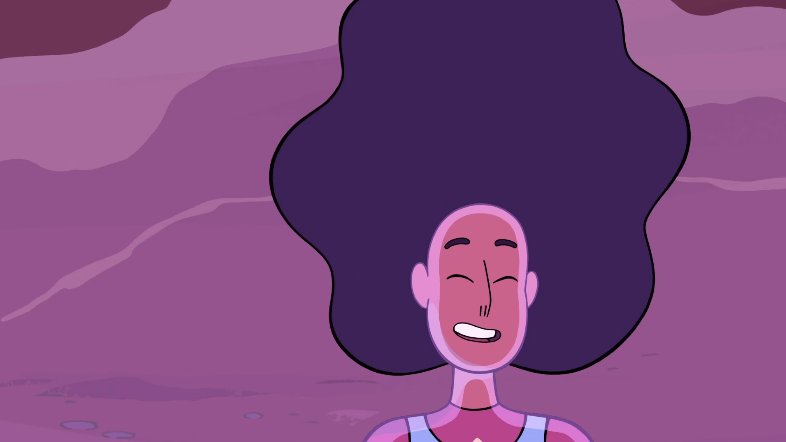
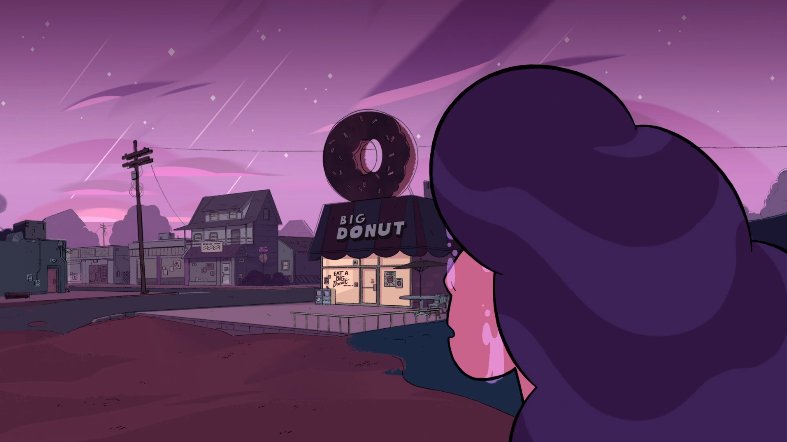
It’s interesting also that for the expressive purposes of this episode, twilight seems to last for hours on end.
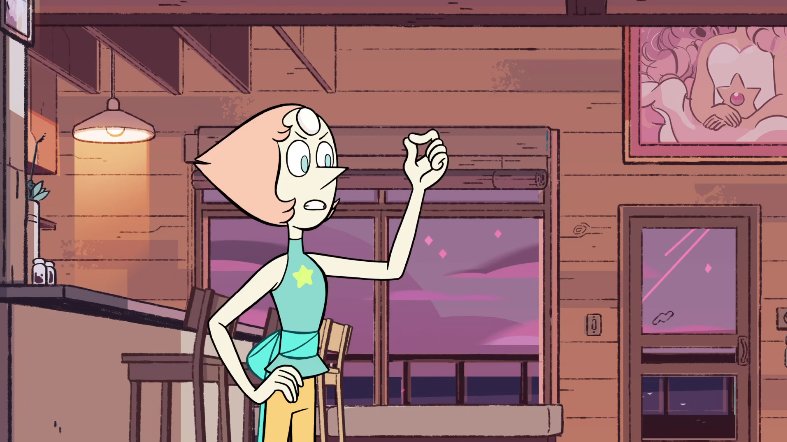
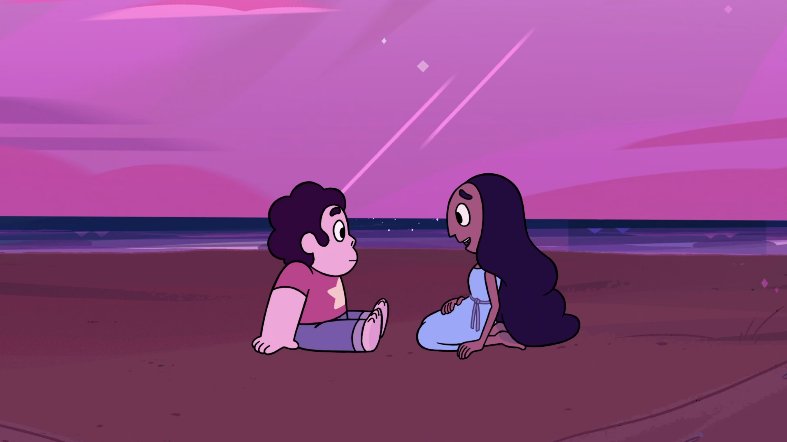
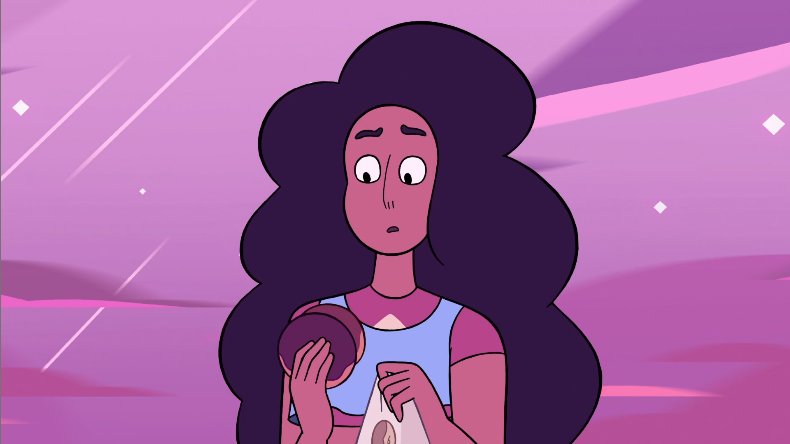
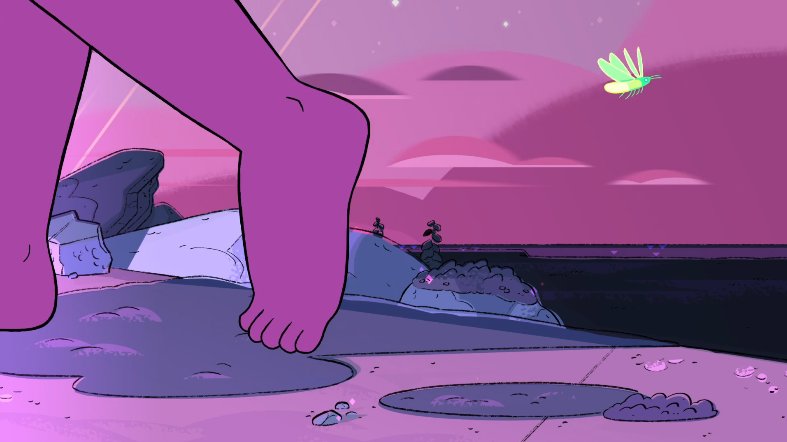
One of many things that makes this story so heightened and uncanny.
I think the twilight palette here also affects my idea of Stevonnie’s coloring. Considering Connie’s and Steven’s relative skin tones, their medium tone here seems about right. But in other episodes, in the daylight, they’re way more pink than it feels like they should be.
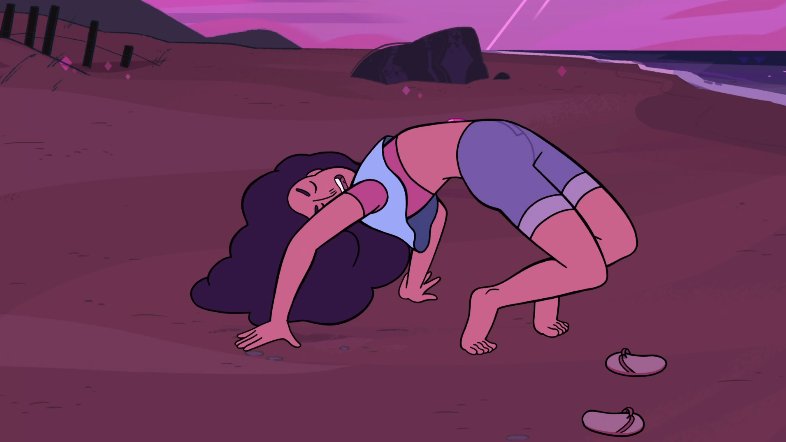
But seriously, yikes: the sound design. Every little thing a character touches, there’s Foley, appropriate to the material and the properties of the room or environment. Everything is directional. There’s always appropriate spatial resonance. So present. And the music floats above.
And, here: when Stevonnie exits the shop, the sound of external crickets and surf, cut off by the slamming door…
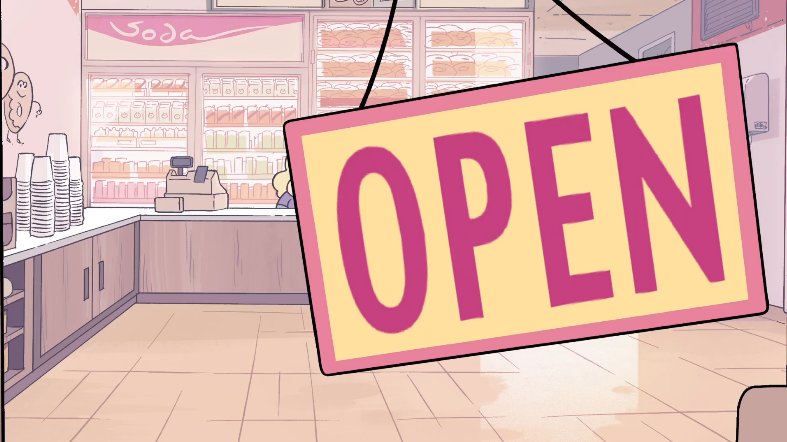
I’m not understanding the level of detail here. What’s the process for mapping out how this works, and doing it?
(By the way, if we’re going to focus on deliberate expressive choices like Stevonnie proffering a $3 bill (ahem), their selection of doughnuts seems… potentially significant. Particularly in the context of the moment they’re having. )
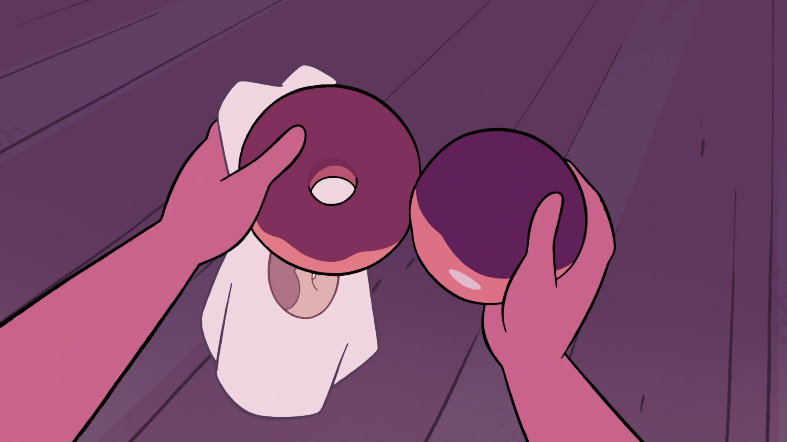
(You can pick apart their anatomy yourself. )
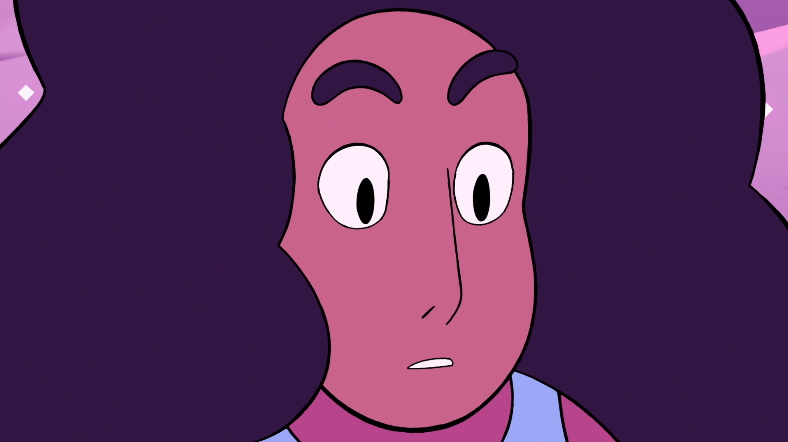
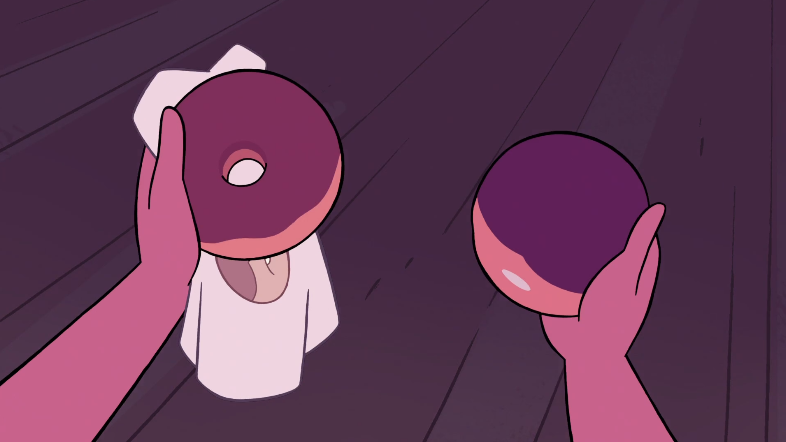
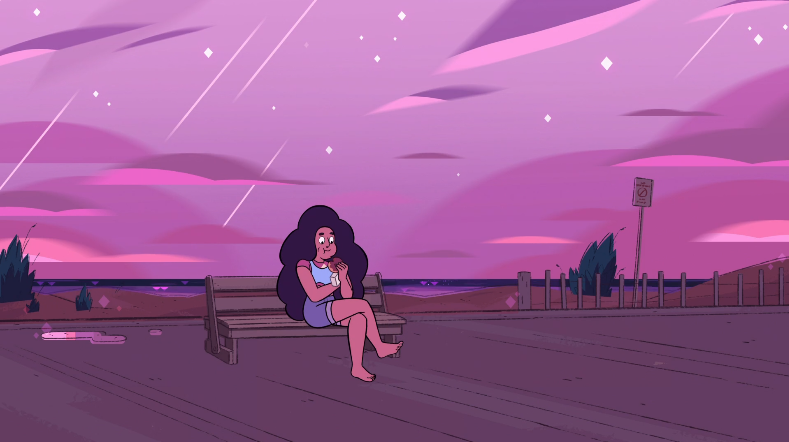
(Come to it, there are an awful lot of deep, blank stare reaction shots in this show. Prime example, from another episode by this storyboard team.)
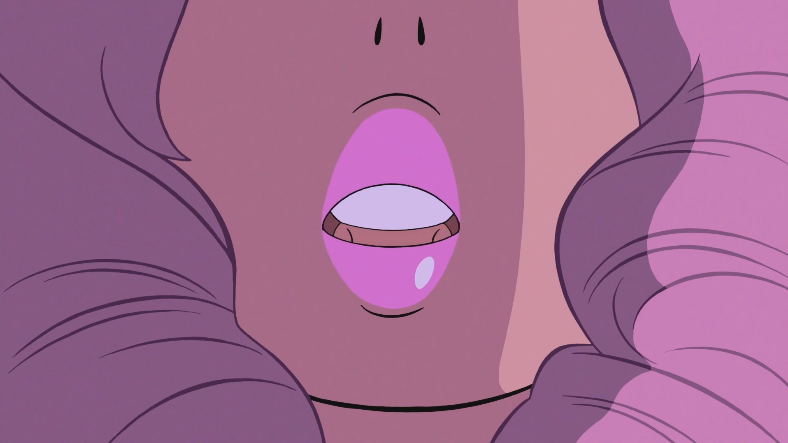
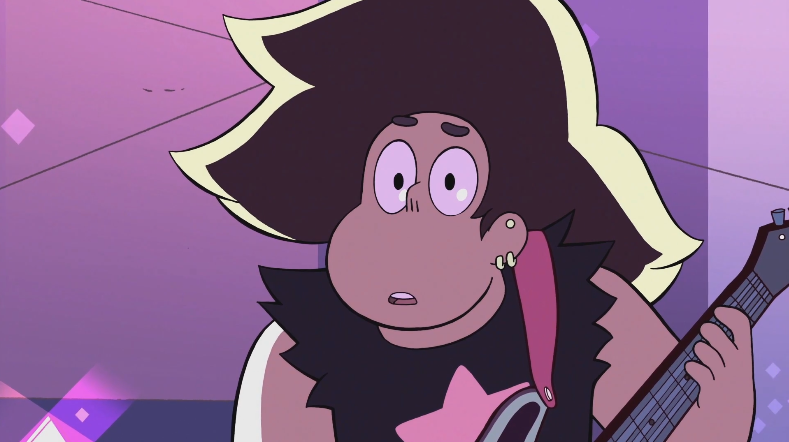
It’s easy to assume Beach City is just those few blocks on the peninsula, between the temple mount and the mainland, but there’s stuff all over the area. The warehouse is part of this industrial zone, across the bay by Brooding Hill.
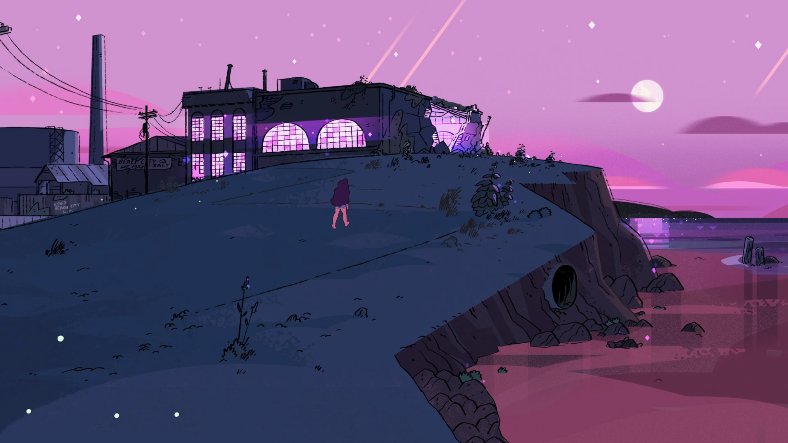
And it’s clearly still in Beach City.
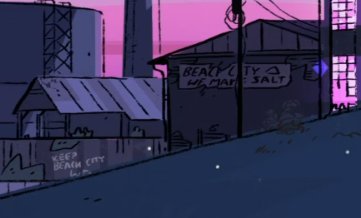
Stevonnie should pull out the sparkle powers more often.
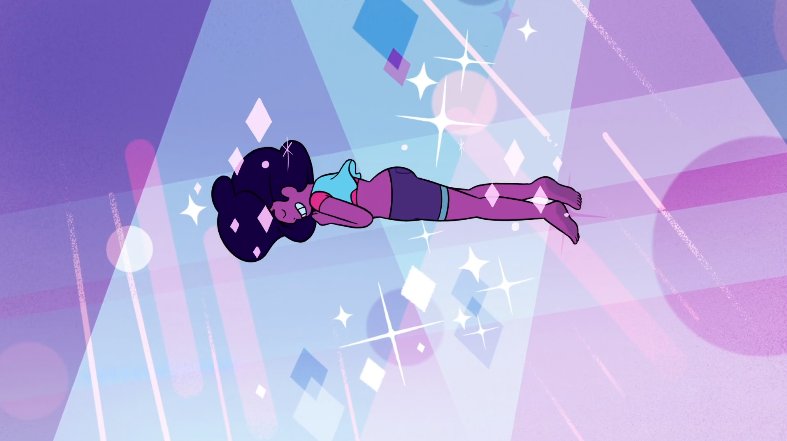
Okay, right. So, sound design. Bopping on back to the next season’s first Florido/Mitroff/Sugar jam—here when the two of them spin in their little world, the Philosophy Majors recording goes from crackly record on tinny diegetic open-air speakers to full-on direct-line soundtrack, filling the stage…
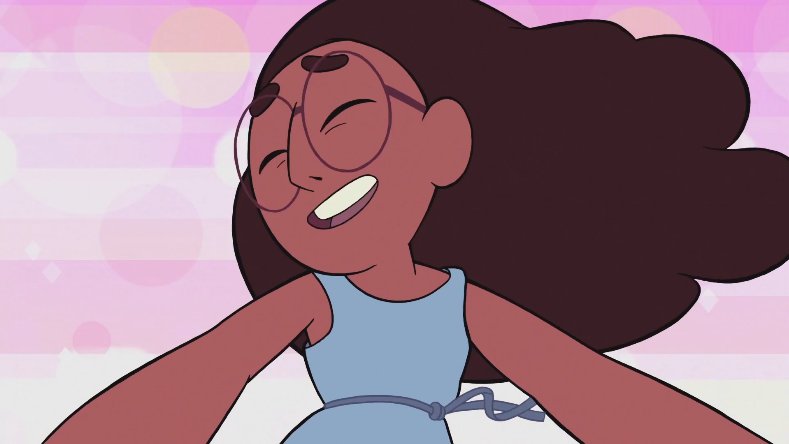
… and when we pull out, it’s back to the tinny speakers.
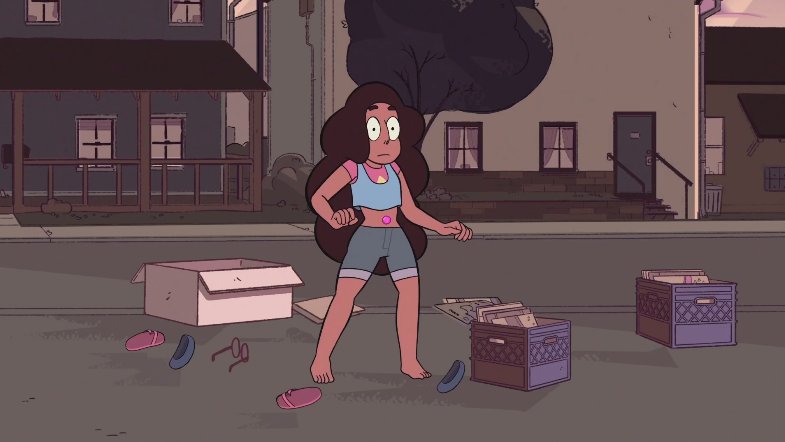
The “What Can I Do For You” sequence (referenced previously, in the open-eyed gawp tangent) isn’t mixed like an album recording; it’s mixed like a slightly off live performance, with people not-close enough to mikes, the guitar too prominent, weird environmental acoustics, and so on. The reverb to the temple entrance, before the house is there to soak up sound…
I feel like I’ve been missing out on a whole dimension, here. There’s such a tangible sense of place, simply from the sound mix. I could close my eyes and know exactly what was going on, where, in relation to what or whom, at all times.
Same goes for the rinky-dink record Greg puts on for Rose. As they dance, it swells from diegetic crackle tin to full-stage direct-line cinema swoop mix, reflecting the emotional focus of the moment. And tying in the story with Connie and Steven’s moment at the start.
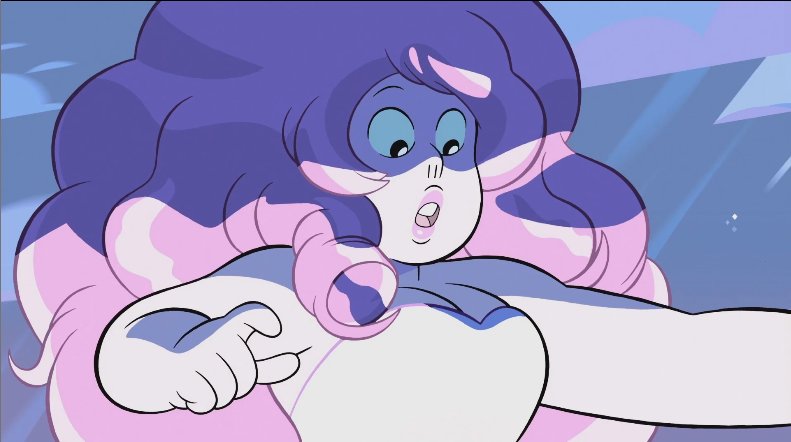
And again it pulls back out to the record player, after Greg disengages and realizes things didn’t quite go as he hoped.
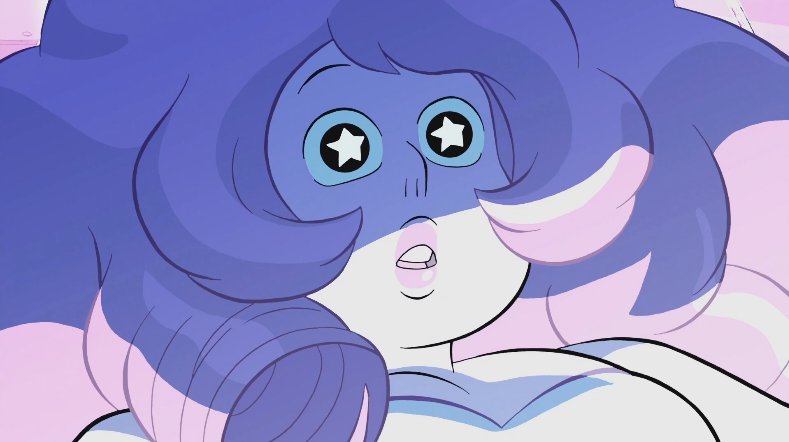
I don’t think the parallel is lost on the two of them.
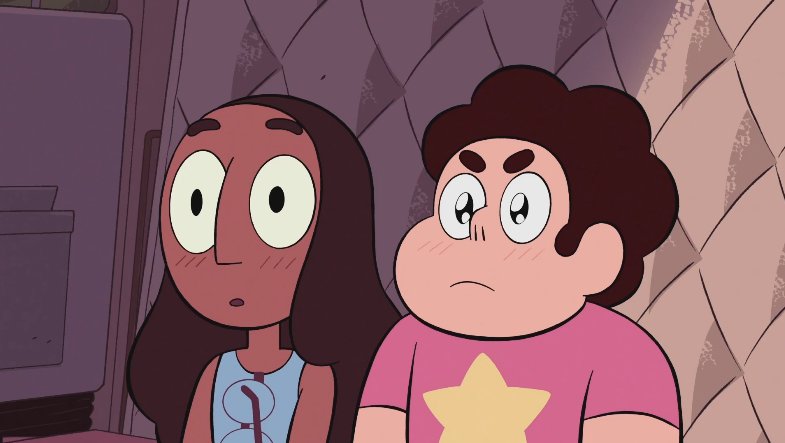
Retreating into Connie’s less-spectacular world, the Maheswarans’ house is quiet to the point it dulls all sound—as a wooden house full of furniture would, one supposes—but there’s still a barely perceptible fizz of street noise, as if heard through the windows.
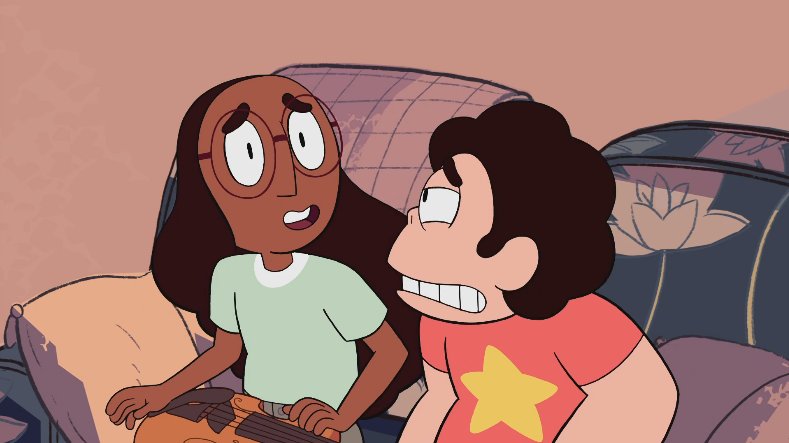
As one might expect at this point, the soundscape of the hospital is every bit as uncomfortable as if one were there: hard surfaces; gross, persistent fluorescent hum.
I love how the sound completely changes inside the bubble, versus outside.
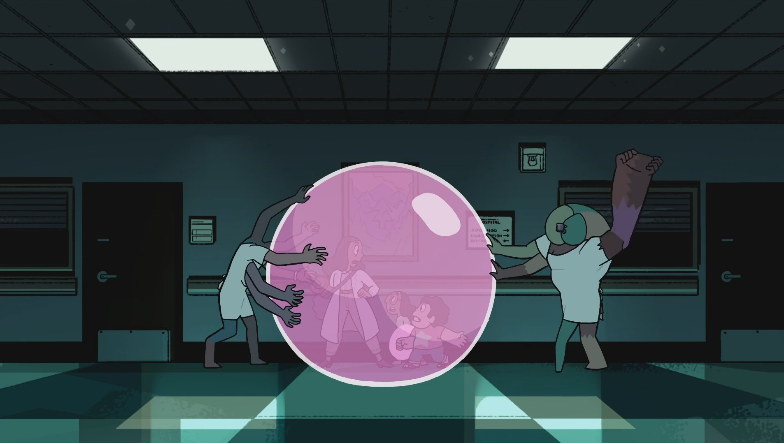
It’s stark, in headphones. Barely perceptible on speakers.
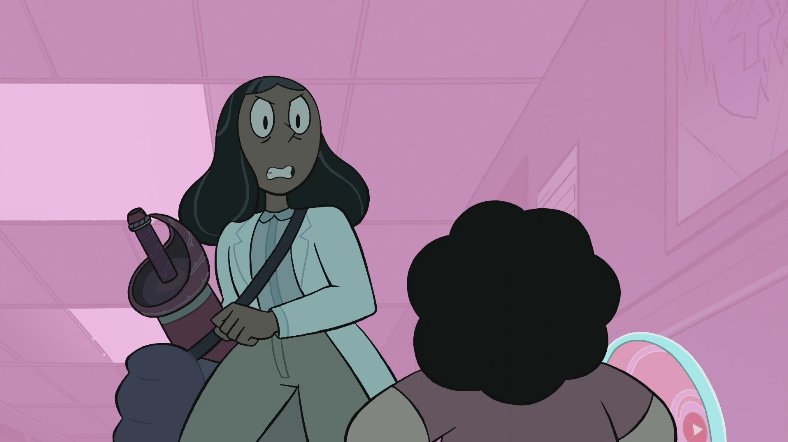
This effect isn’t unique to “Nightmare Hospital;” it’s been there since the bubble’s first appearance alongside Connie.
Again, inside, outside the bubble. When we go to an interior shot, all the subtle sounds of the shore, they’re distorted—not just muffled, but the curvature seems to phase the sound as much as the material blocks certain frequencies. It all depends on “camera” placement.
The audio impression is significant in this case, with Steven and Connie trapped in their protective bubble. The whole audio environment is different in there. Resonance. Presence. Which adds to the separation between the literal bubble the two of them are in, relative to world.
Also nothing new here, but that’s our first glimpse of Obsidian’s sword.
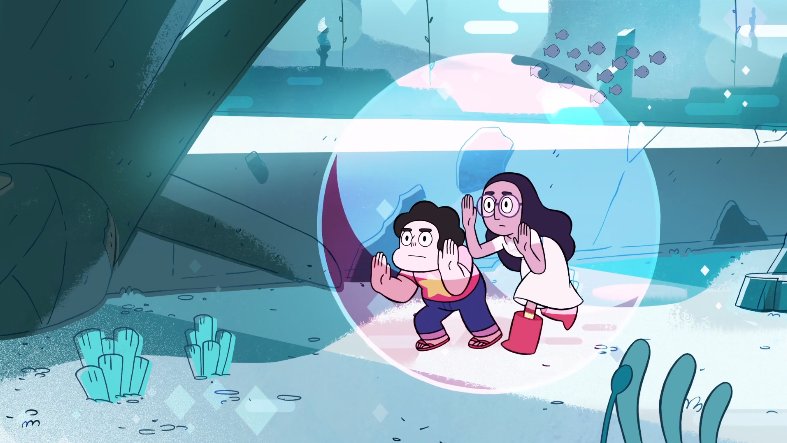
And the incidental music — when the headphones pull it out in the mix, and cinematically wrap it around the reality of the scene, it stands out all the more how beautiful it all is. And there’s so goddamned much of it in this show.
Connie has lived in a bubble her whole life. In meeting her, Steven’s first impulse was to literally put her in another protective bubble. It’s not until they reach an understanding, she stops being so scared, and he stops trying to be so cool, that the bubble pops. Both bubbles.
(On the topic of protective bubbles, in the early days every time Garnet bubbles a gem it’s when Steven is distracted or has his back turned. He literally has no idea what’s going on most of the time, and nobody takes the time to explain it to him or the audience.)
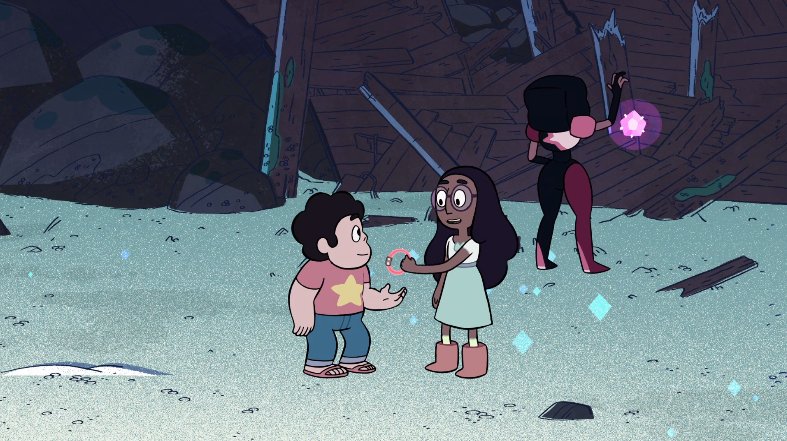
The bubble typifies the best environmental effect in the show: transitional atmospherics. A subtler example is when Steven and Connie are up by the laundry, and all the wind and surf are around them—then the scene cuts to the beach house, and the same sound is muffled by the thin walls.
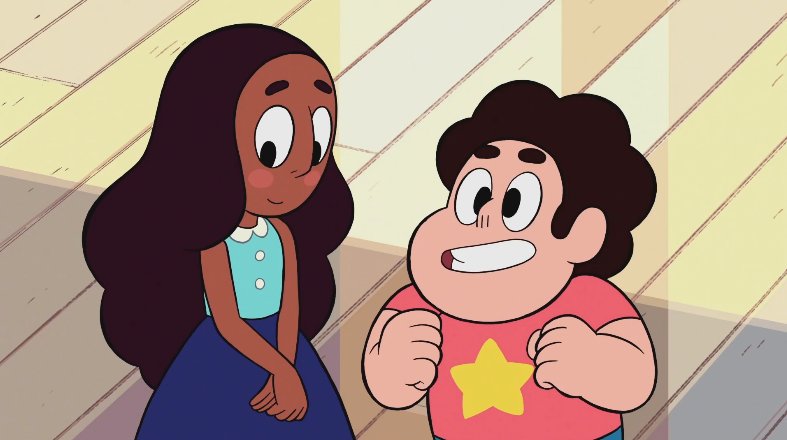
(So many of the backgrounds contain things like this. A STORE or A GAME.)
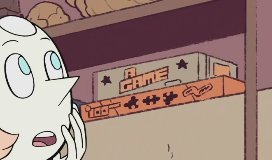
The musical number that follows demonstrates a thing the show does more regularly than is obvious. Here, Pearl’s part is diegetic—which is to say it sounds like she’s in the place, just singing there alongside Connie—but the piano is… there needs to be another term, but it’s floaty. It’s superimposed in that ethereal way.
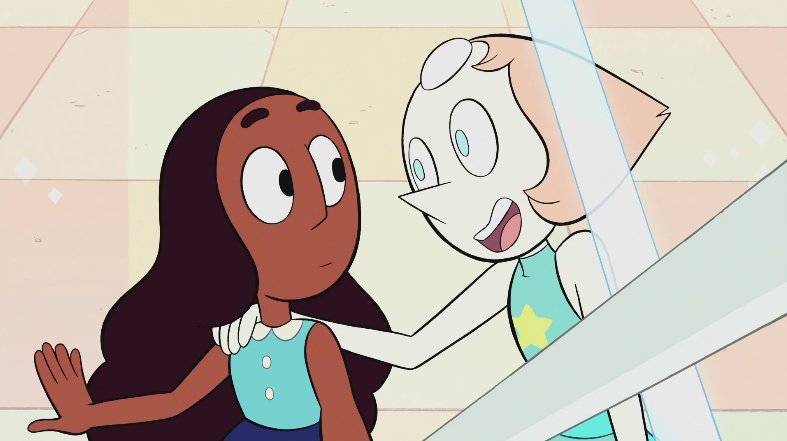
So Pearl’s really there, singing, for whatever reason, in the reality of the show, but the accompaniment is clearly there just for our benefit, like any other soundtrack element.
Another good example comes a season on, with “Mr. Greg.” Get past a bunch of really nice lobby sounds, and when Pearl’s song comes in, just as in “Sworn to the Sword” she’s mixed so that her singing is contextual, in real-space as far as the narrative, but the overlaid piano is coming from that phantom soundtrack zone.
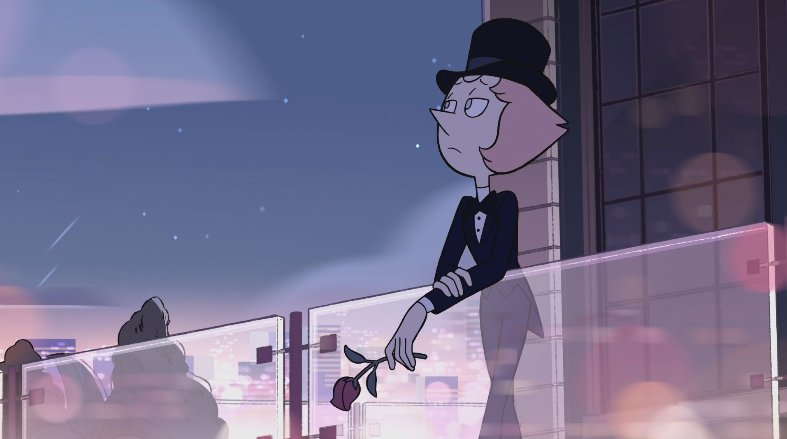
To contrast, this piano is mixed in differently, because it physically exists in the scene.
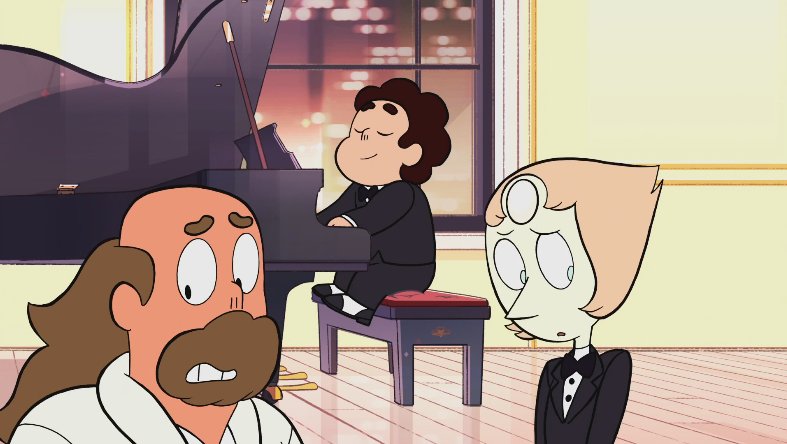
Though predictably, if we’re studying the way the show handles these things, when we get to the Expressive Zone, it expands out and becomes full, all-absorbing soundtrack material.
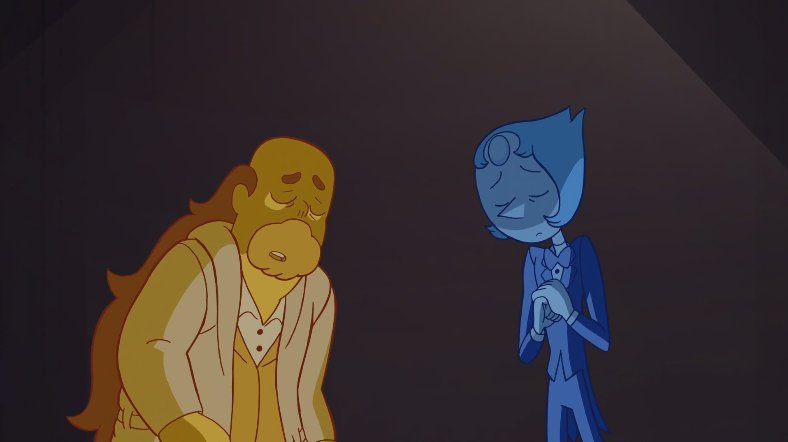
This tendency dates back to the show’s earliest song cues. In the case of “Giant Woman,” Steven starts off singing diegetically, with the ukulele strumming in on the cinema stage. Through this first shot the atmospheric wind continues, albeit higher and lower in the mix according to music volume. But then it expands, as it becomes a montage.
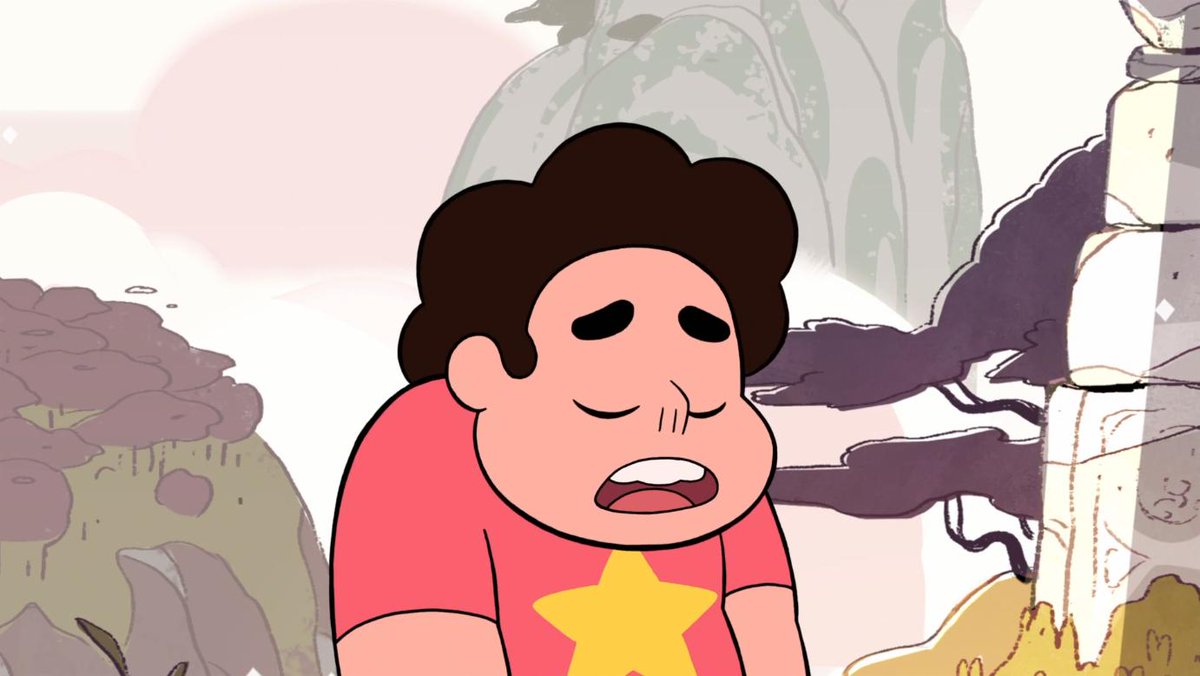
For just a beat here until the singing comes in and it’s clear that it’s an overdub rather than happening in the minute, we continue to hear the Andes wind whirl through the frame. But then it quickly pulls out, and we’re on full OST mode…
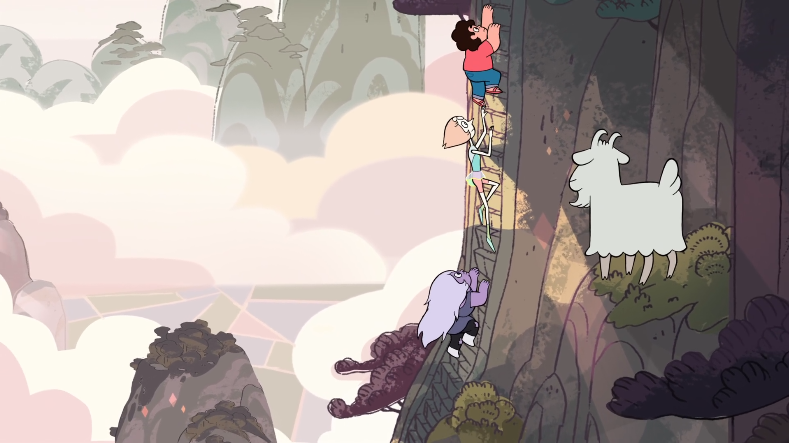
… until Steven Junior chimes in at the end.
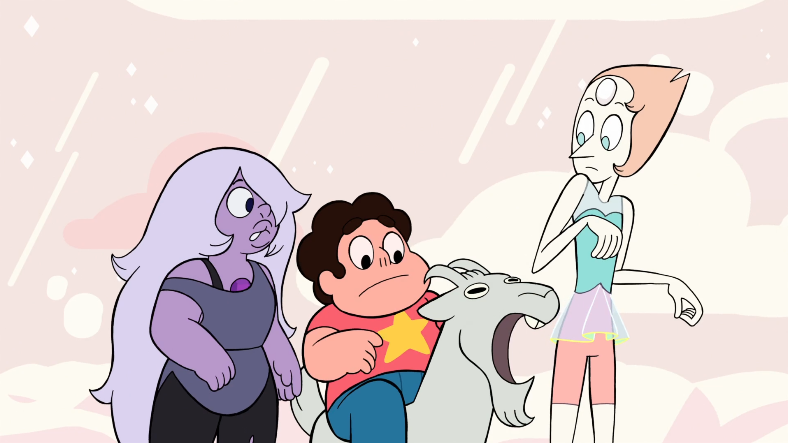
(Or, I should say, until that shot, which is where we transition back to Steven’s diegesis, and so start to hear a few subtle environmental noises buried in the mix—insects and birds, mostly.)
Back at the beach house, one notes that the ocean becomes an almost constant presence in the show once you can hear all the sound design. It gives the whole show this undercurrent (if you will) of melancholy, grounding every scene in and around Steven’s home in a sort of baseline of unsteadiness.
And it’s not just Beach City. Everywhere they go (e.g., the sky arena), there’s some kind of mournful environmental noise, just low enough that maybe you pick it up in your muscles, but you don’t quite hear it without headphones. Combine that with the complexity and detail of the incidental and contact sounds, and the environments practically become characters.
Cute incidental, on the topic of sound design: the three words Connie speaks through her hands, someone muffled in the mix. You can tell Rolek didn’t record the lines that way, but whoever’s doing this apparently thought this was an important detail.
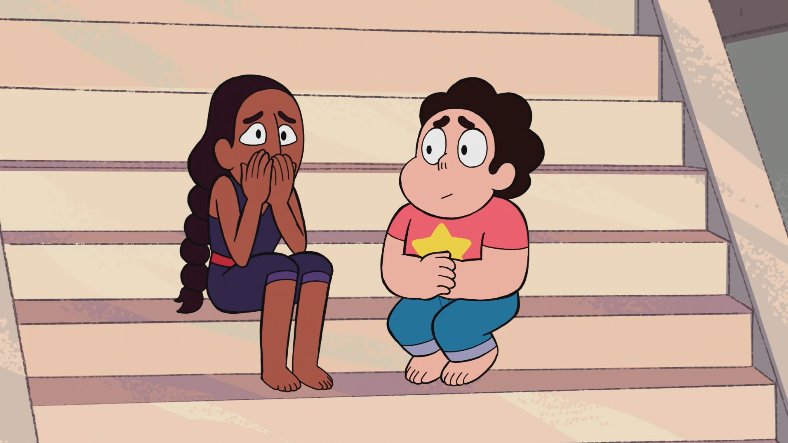
And whoa, fusion-space has… interesting acoustical properties. Like a closet made of Plexiglas.
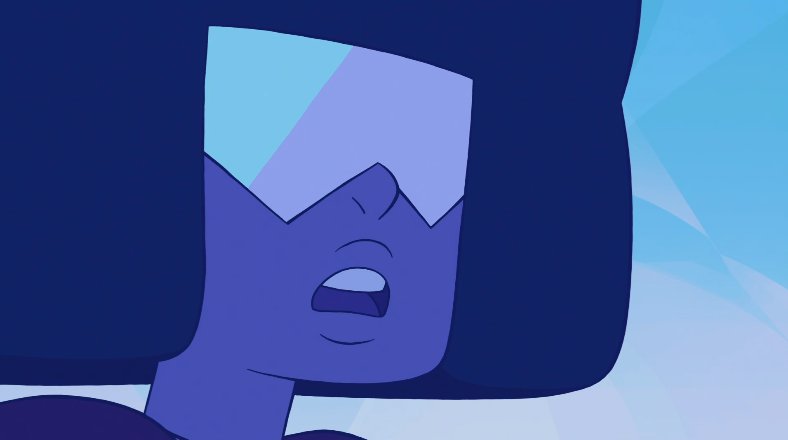
Also I don’t think I’d clocked just how much bass there is in this song. Which there would be, considering Garnet’s role. It’s just so low, it doesn’t come across in the white-people speakers I have.
Seriously, though, the atmosphere in the beach house is one of my new favorite things about the show. It’s like some quiet purgatory, technically safe but not quite… secure.
That turmoil of the constant surf and wind, it accentuates the way Rose looms over everything, her eyes often as not dramatically blocked by the rafters, depending on what’s happening in the story.
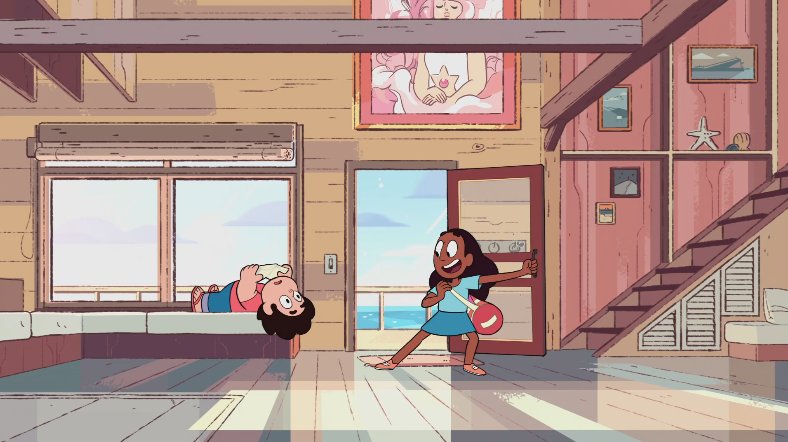
Here we’re right about to see Steven’s freak-out in which he envisions Rose’s face glaring down at him from the sky—and look how we’re introduced to that sequence.
I need to document how that portrait is used through the course of the show. It’s some Hitchcockian shit, I tell you. Every time it comes into frame, it’s… there’s a reason for it. Even for all my tangents, this topic is way outside the remit of our discourse here—but worth a deep spelunk at another time.
Anyway, the grinding, phasing bass tones here…
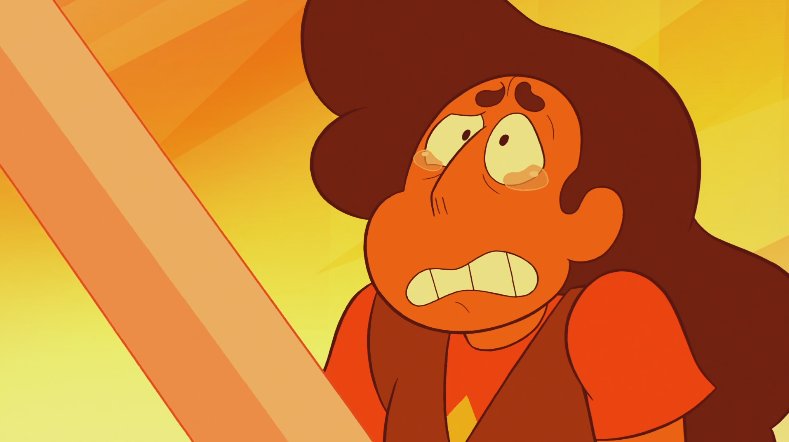
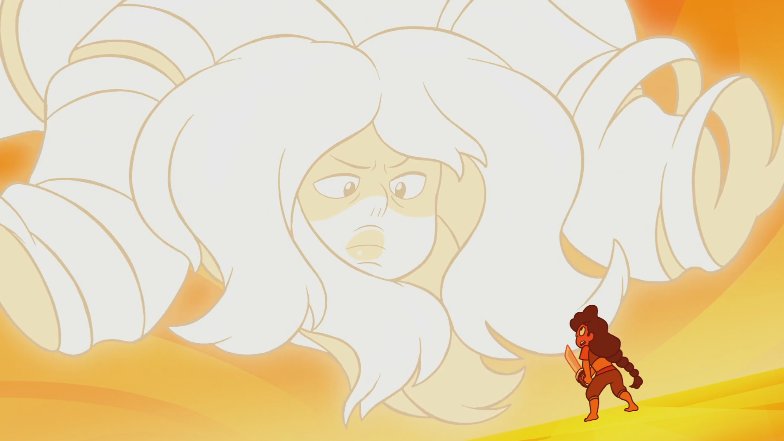
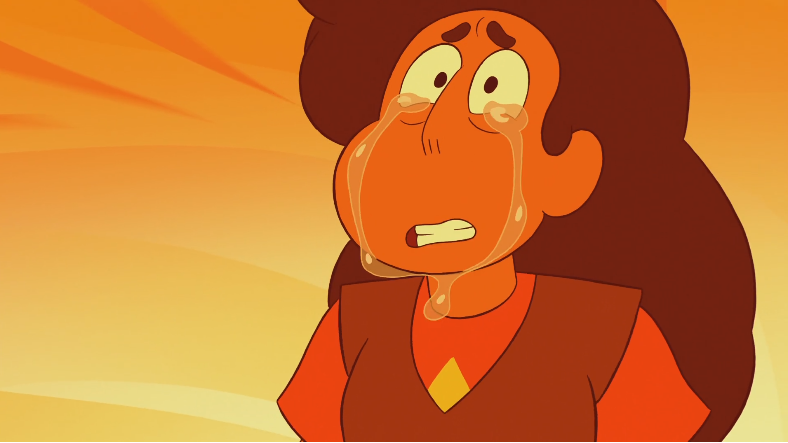
Golly, I’ve never had a 5.1 sound system. But I guess this show would be something with one of those, huh.
Speaking of which, “Storm in the Room” is certainly a go-to episode for unsettling beach house atmosphere.
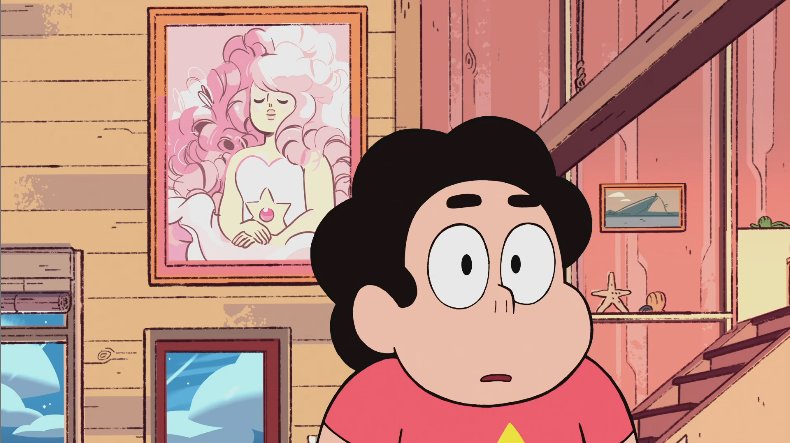
In the room, it’s another level of purgatory: all distant wind, and the rustle of Rose’s dress.
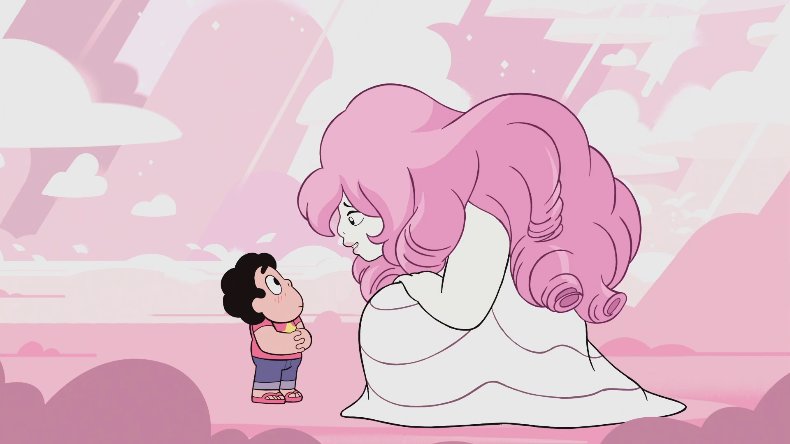
Even as they play the weird Lonely Blade arm wrestling foreshadowing simulator, the wind continues to roil, preventing anything from feeling quite secure.
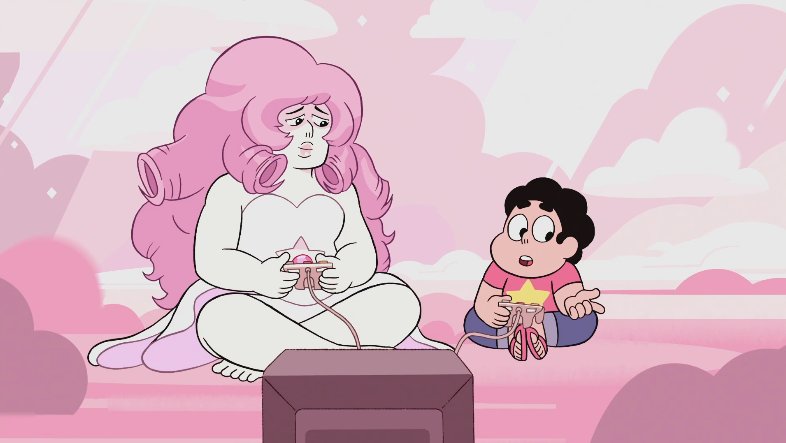
Then when this happens, there’s this deep grinding noise, similar to Stevonnie’s panic attack zone in the Sky Arena.
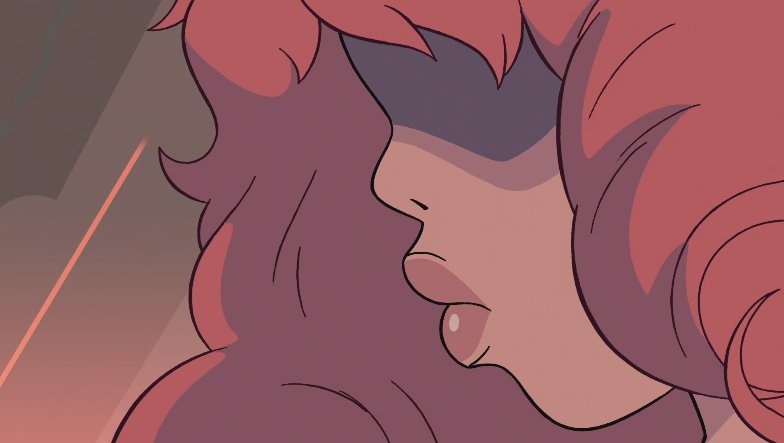
Curiously, the atmospherics on the jungle moon aren’t… quite as alien as one might expect. It sounds like a plausible Earth rainforest, including what sounds suspiciously like Earth crickets. It’s not even all that all-encompassing.
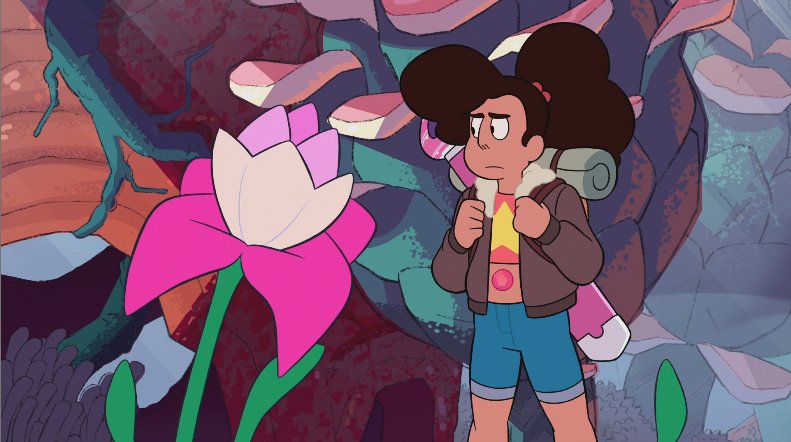
The hum and thrum of the failing radio is something, though.
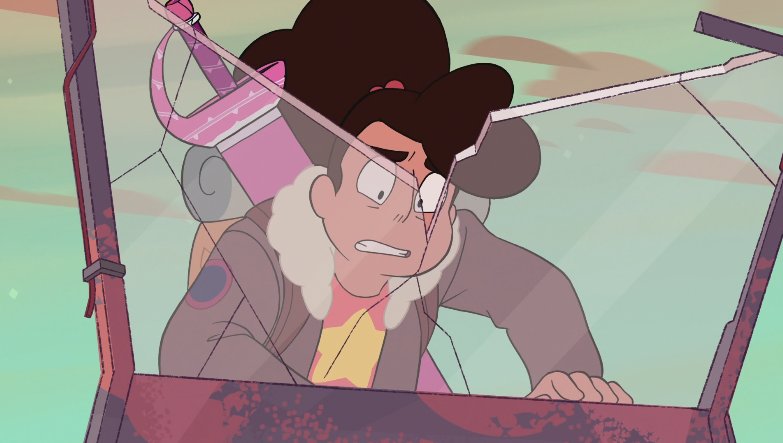
Though the outside surprises me with how underwhelming it sounds, considering how engrossing it looks, the interior of the overgrown moonbase is another story. Here’s where the sound design finally wakes up.
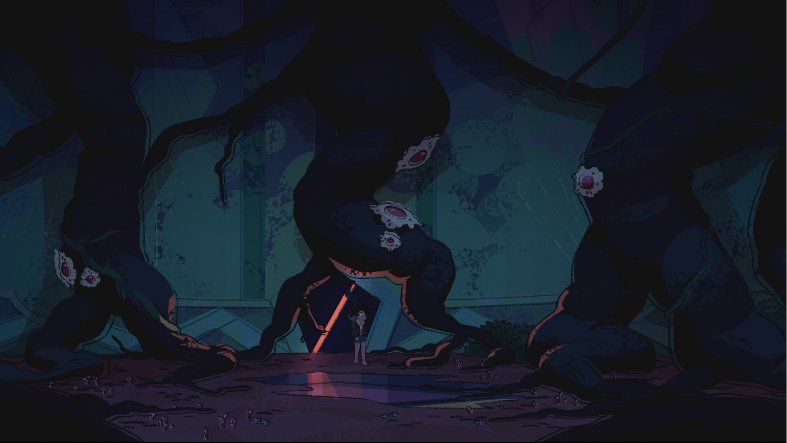
Thing that always gets me about this picture, the way it’s re-staged with Stevonnie, it almost makes Priyanka and Doug look like an older Connie and Steven. I don’t think it’s an accident they gave Doug Steven’s nose and hair type, or general head shape. Because, Freud and all.
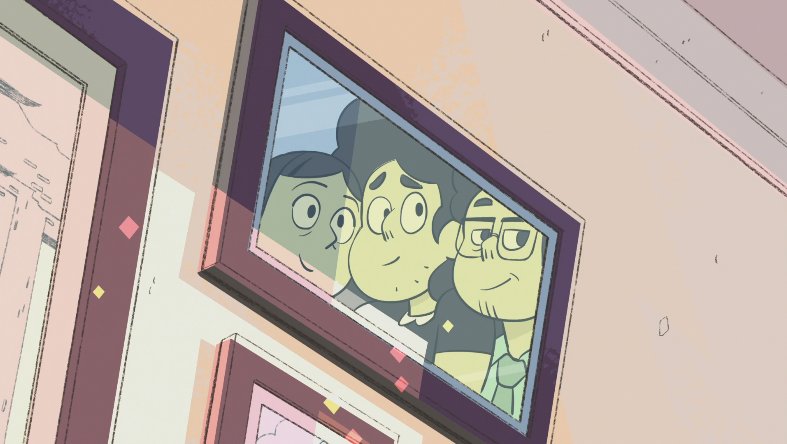
Actually, to build on the whole Doug/Steven parallel (I guess as parallel to the Pearl/Connie parallel):
“I’m a member of the Crystal Gems! We fight monsters and protect humanity and stuff.”
“Oh! That’s kinda like my dad. He’s a cop. W-well, more like a private security guard.”
I think I mentioned this before, but the Pearl/Connie thing is extra complicated in that—uh. So, okay. Steven’s the reincarnation of Rose, right. So it makes sense on that level he’d find his own “Pearl.” But also, Pearl’s as close to an actual mother figure as Steven’s known.
So, there are a couple of levels of “Hm” to his immediate fixation with her, depending on how you want to come at the situation.
Another aspect to the Connie/Pearl thing is their role as catalyst to their respective Diamonds’ (well, technically the same Diamond) stories. Rose would never have been Rose without Pearl’s imaginings and motivating influence. Until he met Connie, Steven had no in to his world.
It’s largely through Connie’s enthusiasm for his whole situation and his motivation to (at first) impress her, then just spend time with her, that he was shaken out of… what, four years of taking things for granted, doing what exactly, and began to question and learn and grow.
Without Connie to push him and take an active interest, Steven might never have gotten much further than Cookie Cats until the Cluster emerged and the Earth exploded.
Also on the topic of portraits, in that same episode (“Jungle Moon”)—I, uh.
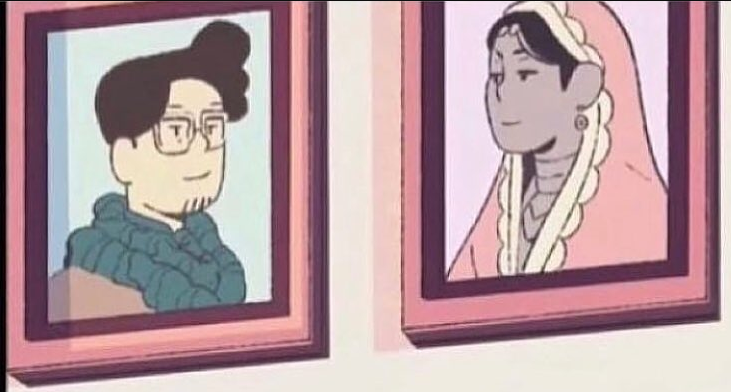
I don’t know that there’s a deeper reading here exactly, but this can’t be an accident.
Back on topic, though—best piece of sound design in the episode: when our friend climbs up on the dome. Every click-thunk of its claws resonates convincingly through the structure. It’s really satisfying.
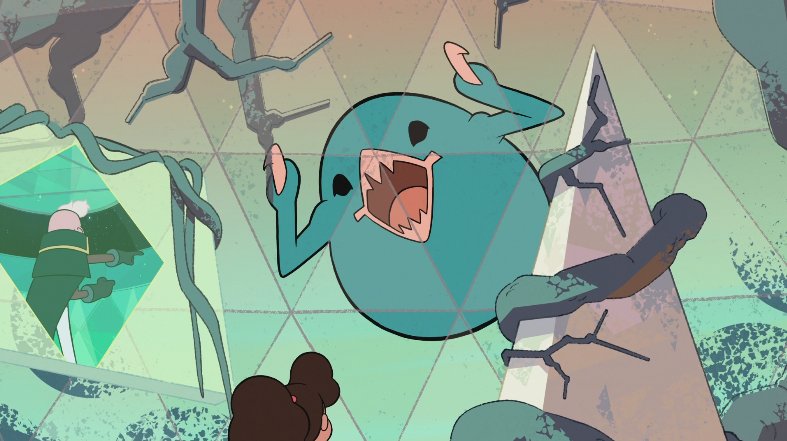
Continuing this Stevonnie theme, because why wouldn’t we—the thrum from Kevin’s speakers is overwhelming. He’s one of those people, where you can feel the bass down the block before you even see the car coming.
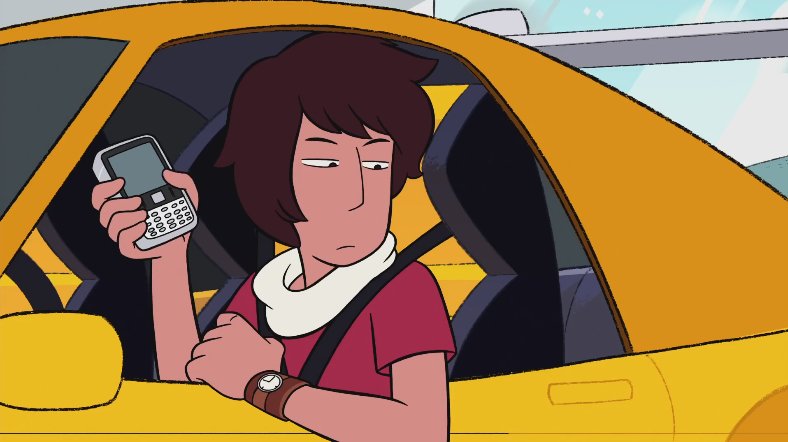
Kevin’s and Stevonnie’s cars have very different idle sounds. The Dondai is… uh, let’s say rickety by comparison.
Panic attacks are a good excuse for the sound design to go nuts. Here it more goes for a deranged detachment. Which fits well.
Toodling right along to wrap up the pre-Homeworld Stevonnie material, weirdly there’s next to zero environmental noise in “Crack the Whip,” once you get past the point where Amethyst refuses to actively watch them train.
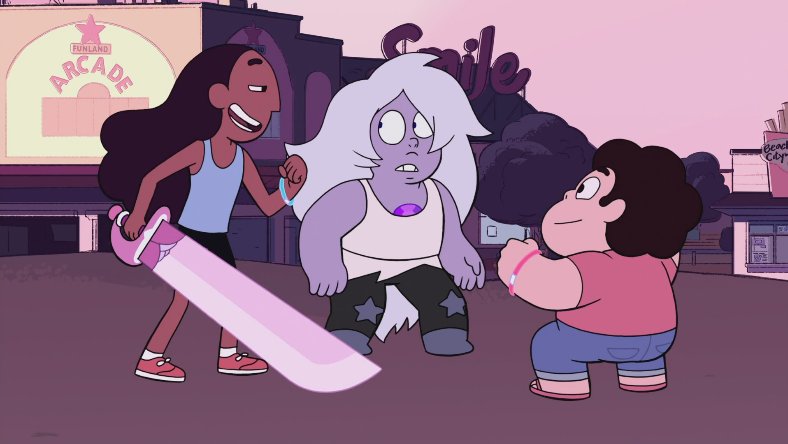
Well, a little really low-in-the-mix white noise at the very end, but. Actually, the mix seems really weird in season 3.
Though I’ve covered the episodes I most wanted to discuss, I’ve got lots more to say on this topic. Hang tight. There shall be more.













